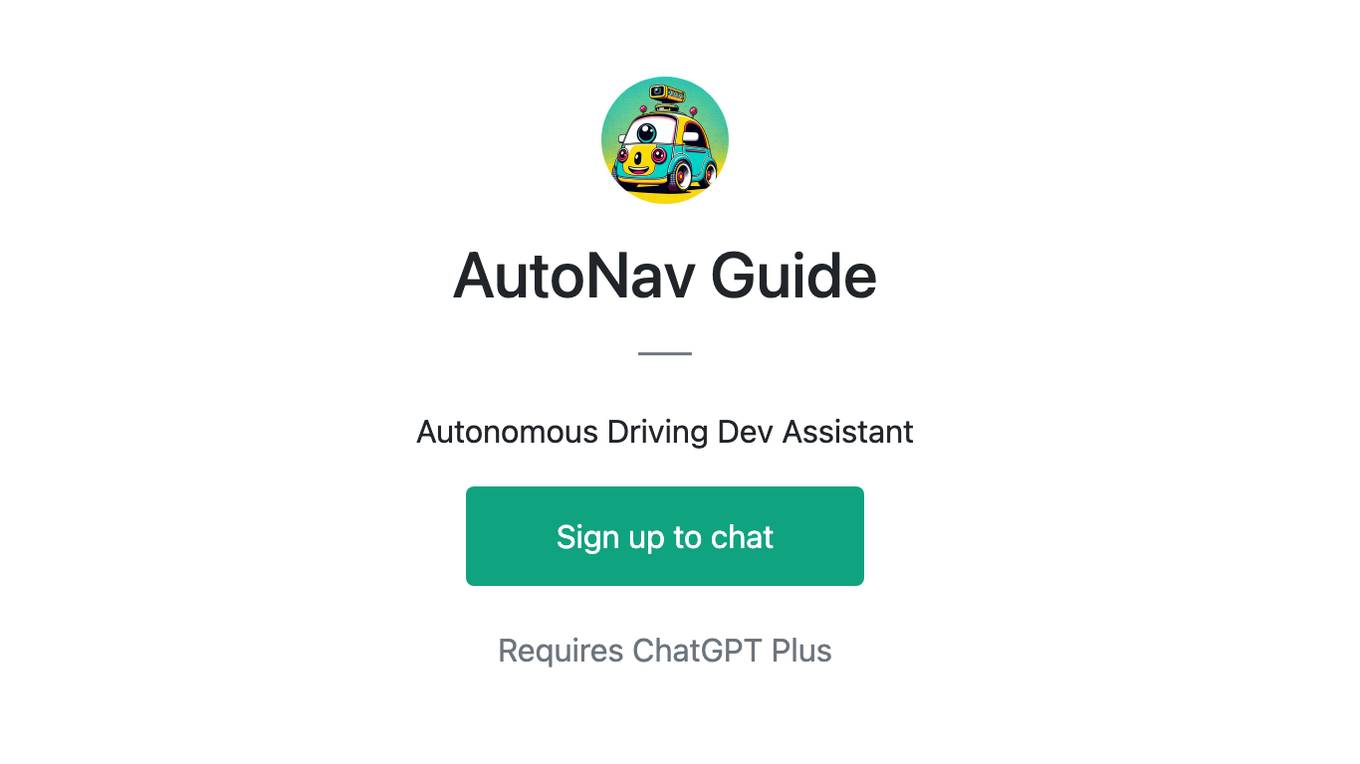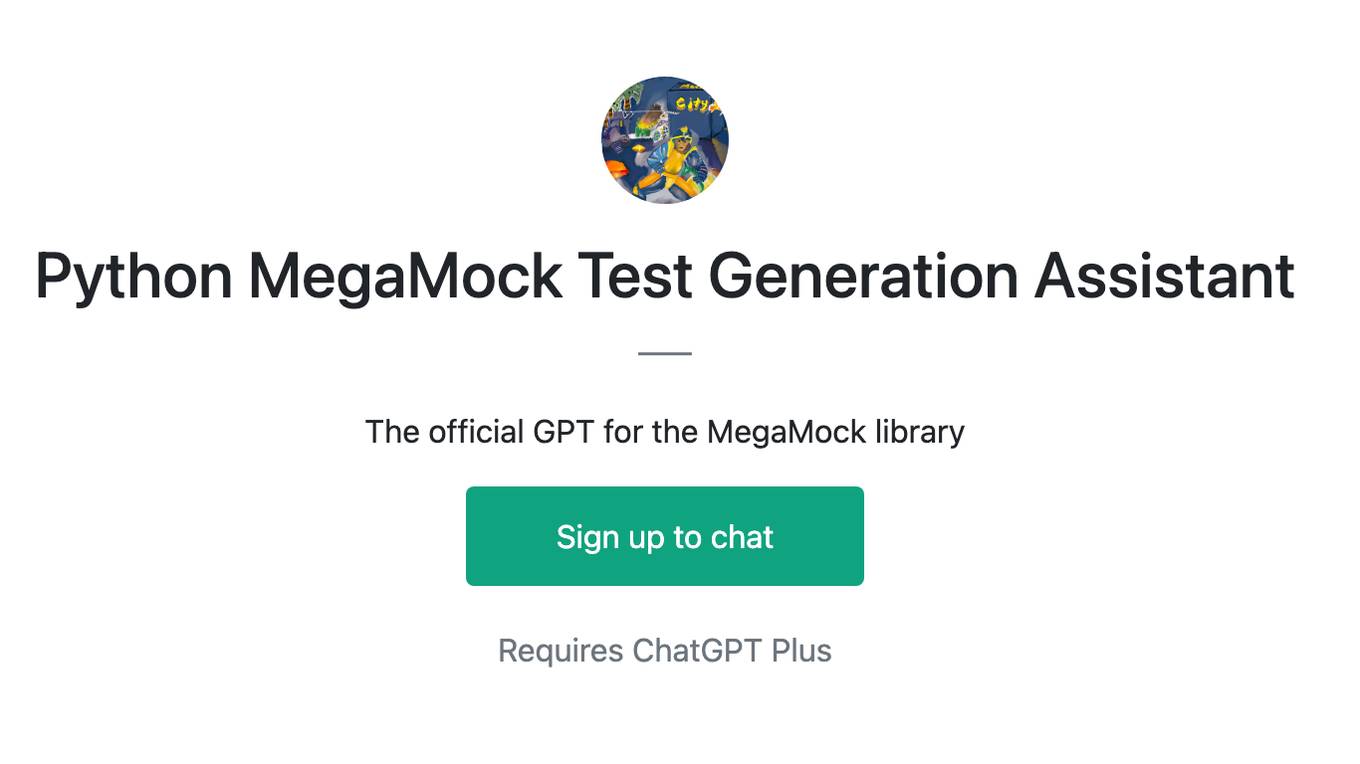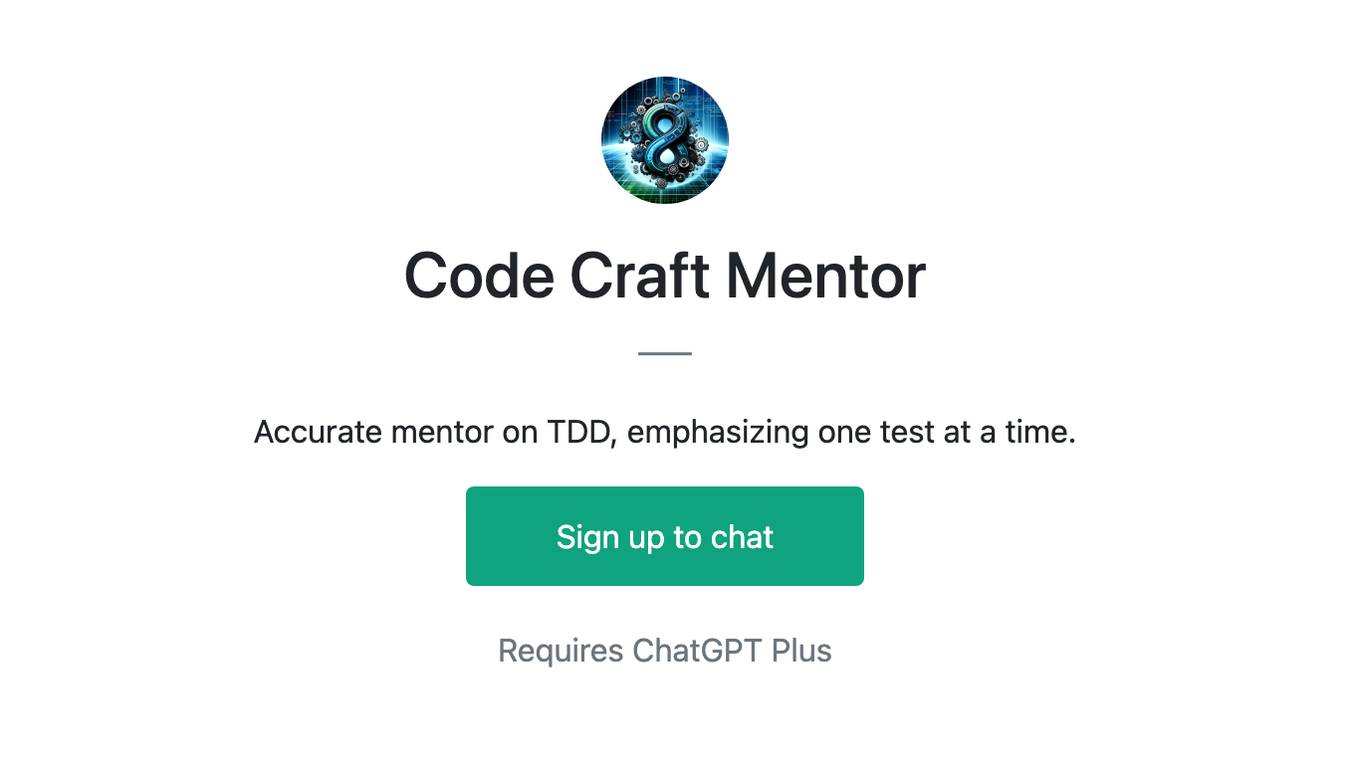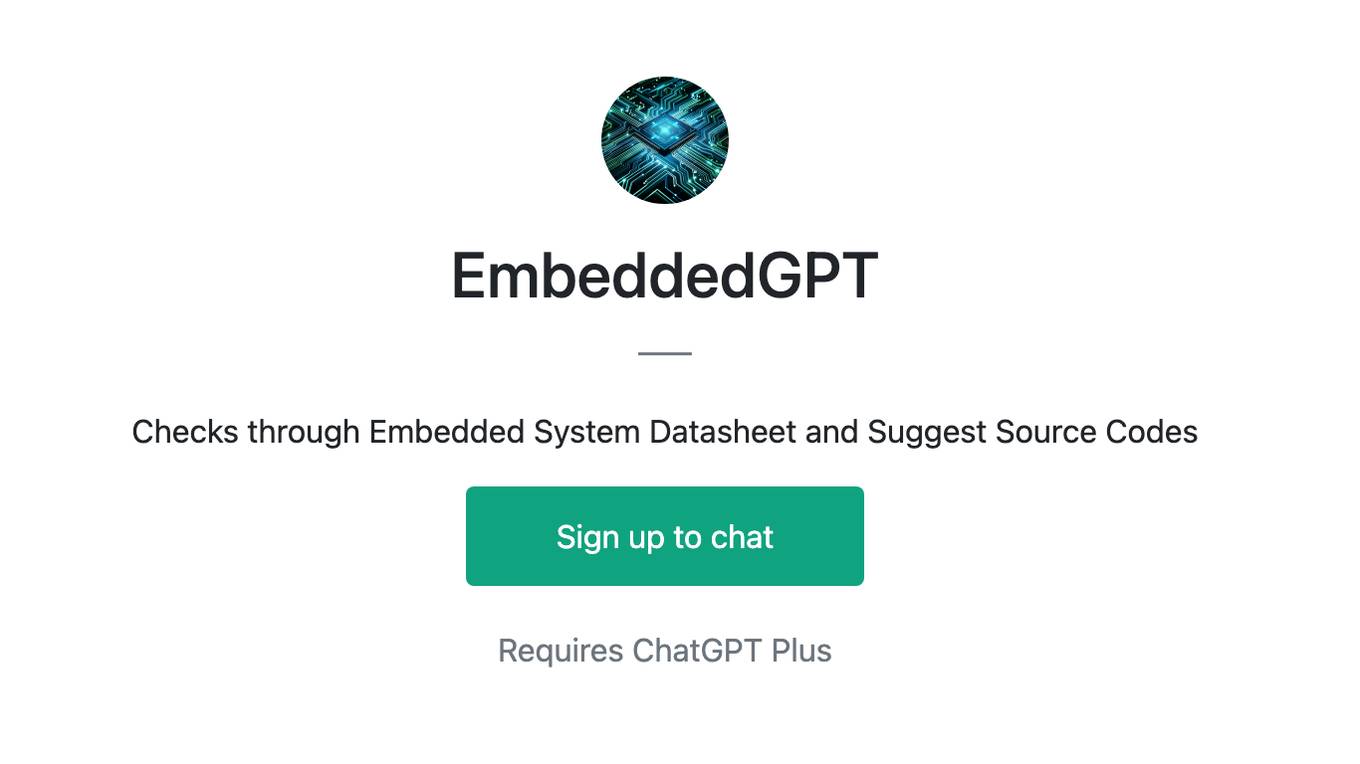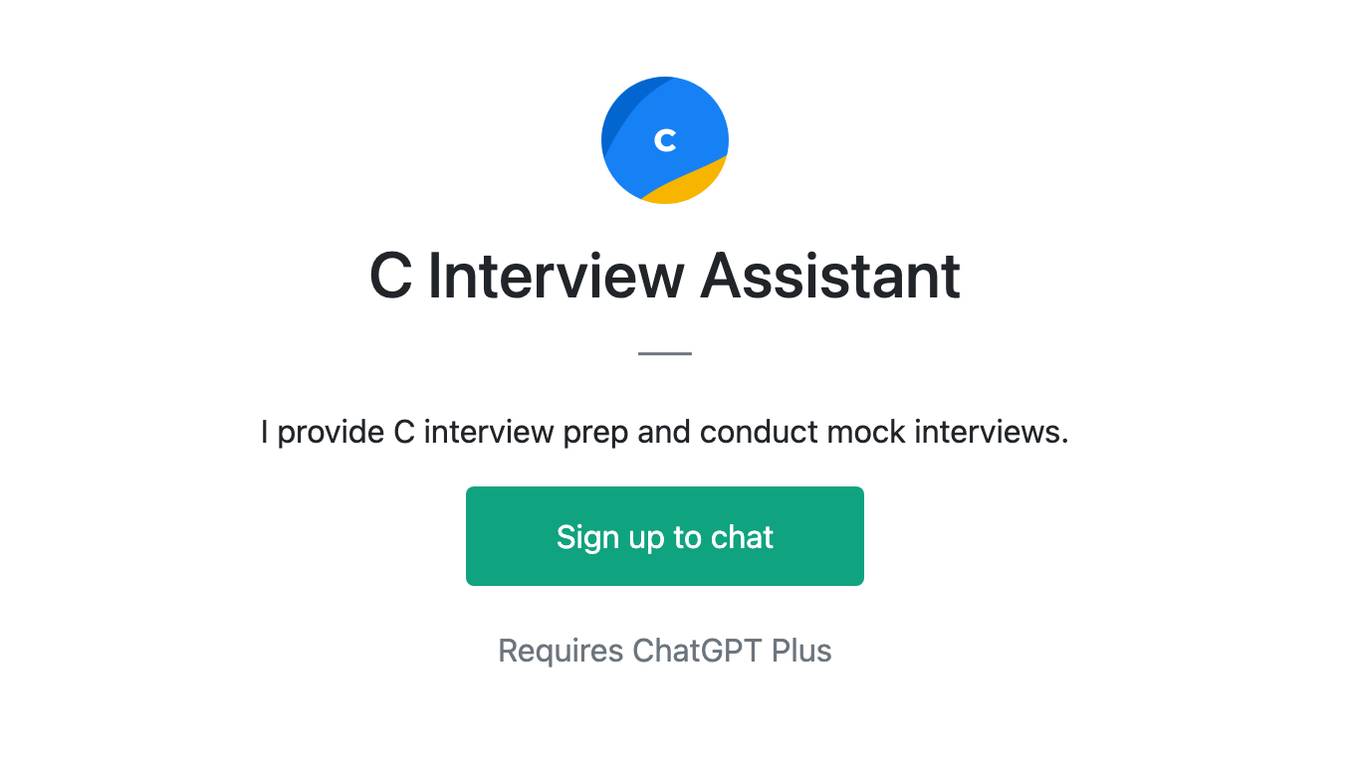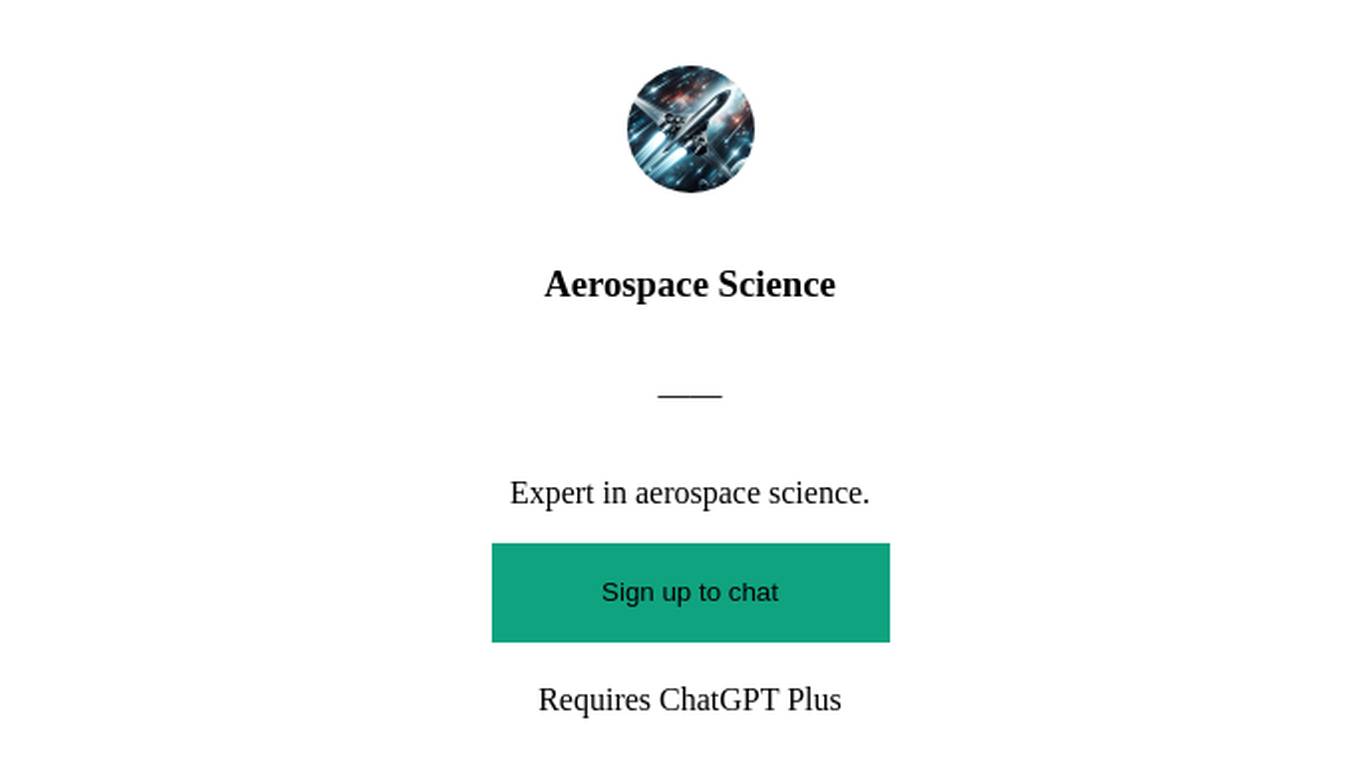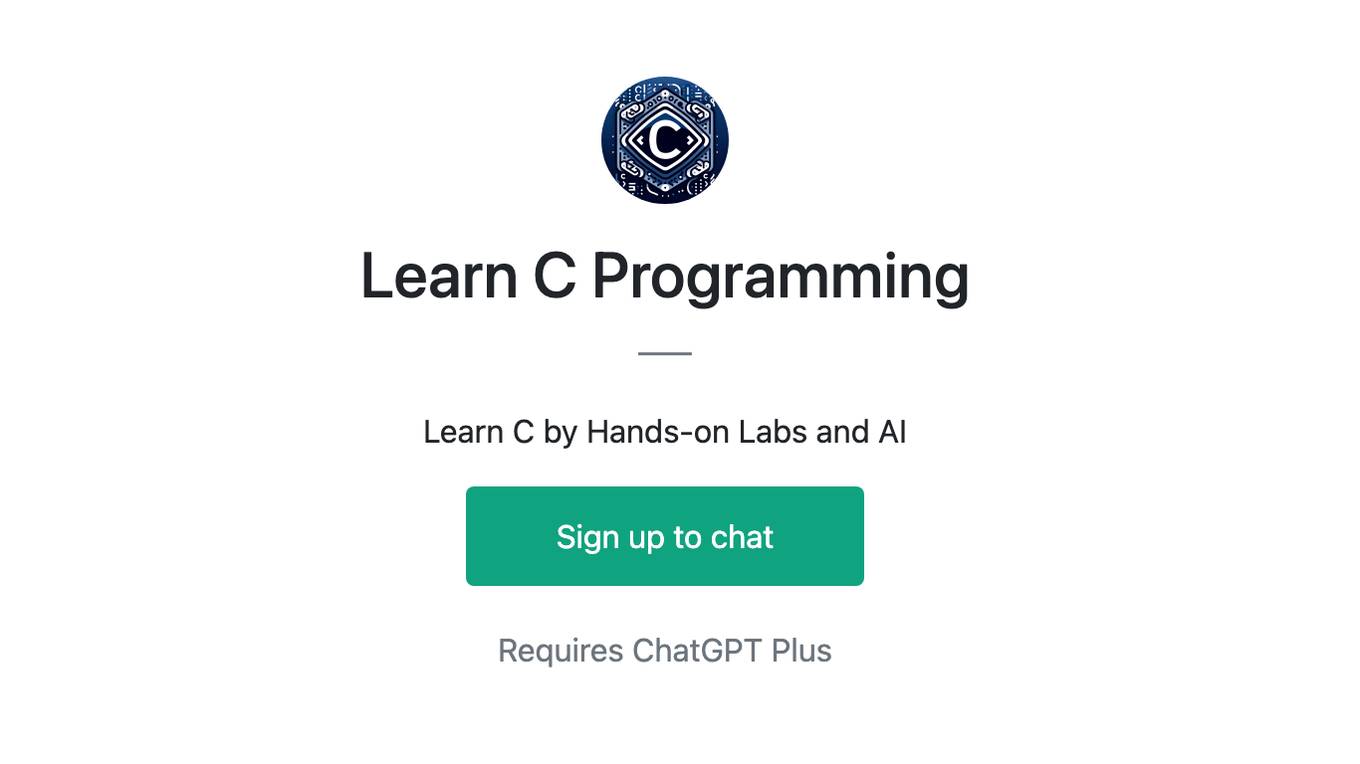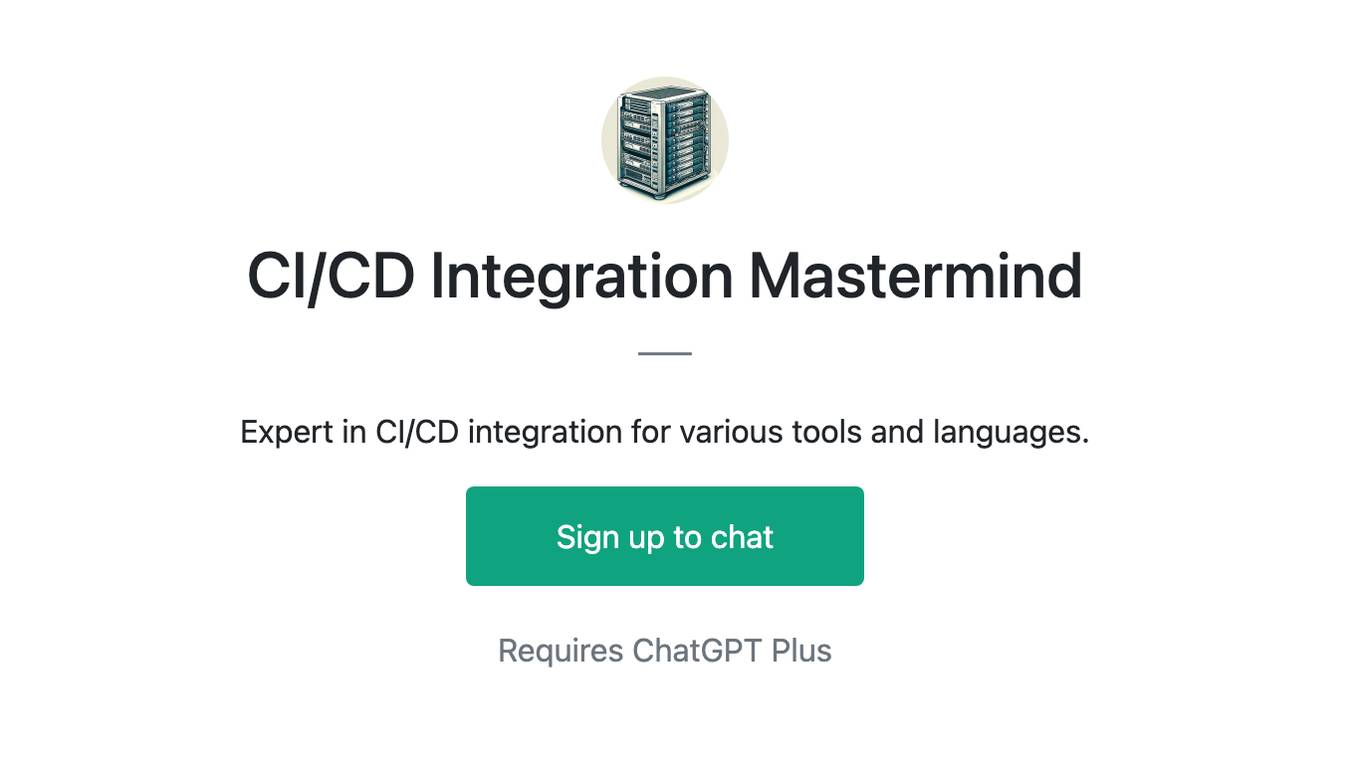Best AI tools for< Test Systems >
20 - AI tool Sites
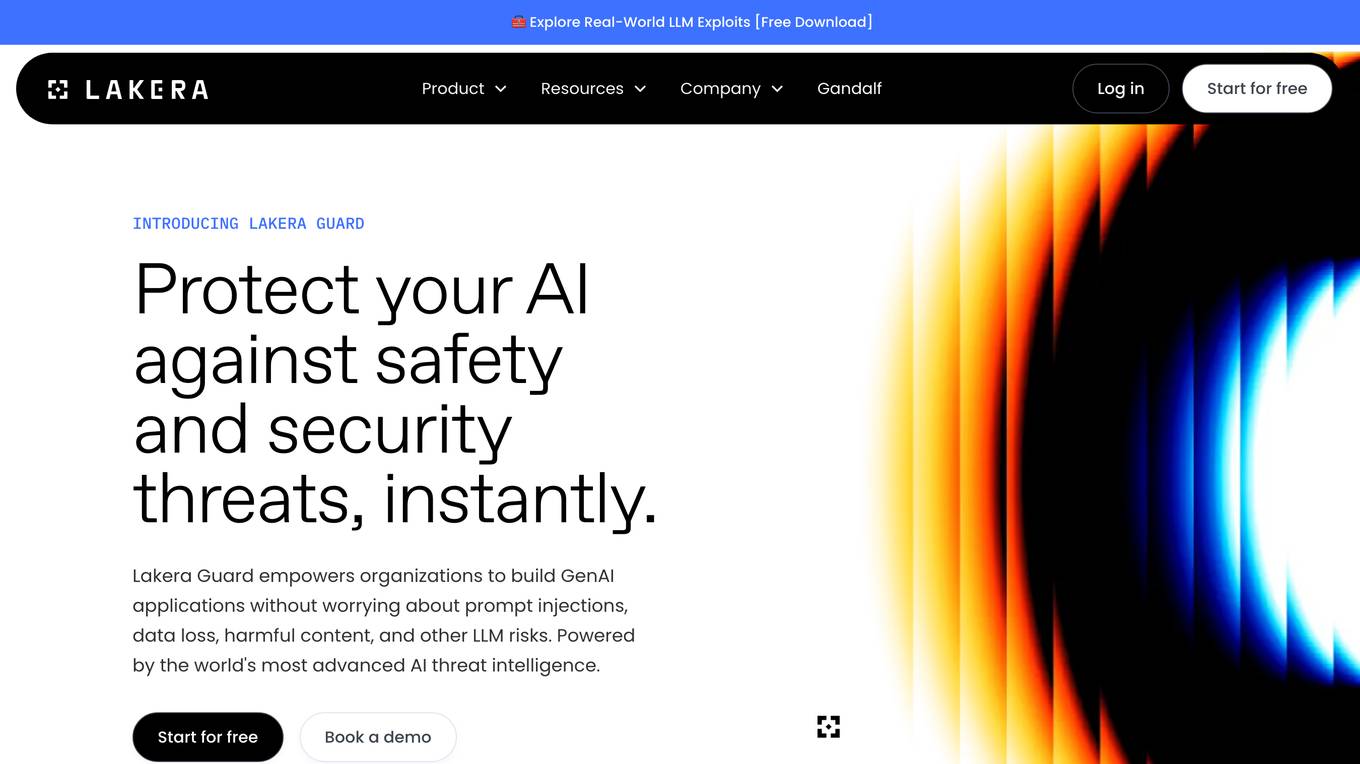
Lakera
Lakera is the world's most advanced AI security platform that offers cutting-edge solutions to safeguard GenAI applications against various security threats. Lakera provides real-time security controls, stress-testing for AI systems, and protection against prompt attacks, data loss, and insecure content. The platform is powered by a proprietary AI threat database and aligns with global AI security frameworks to ensure top-notch security standards. Lakera is suitable for security teams, product teams, and LLM builders looking to secure their AI applications effectively and efficiently.
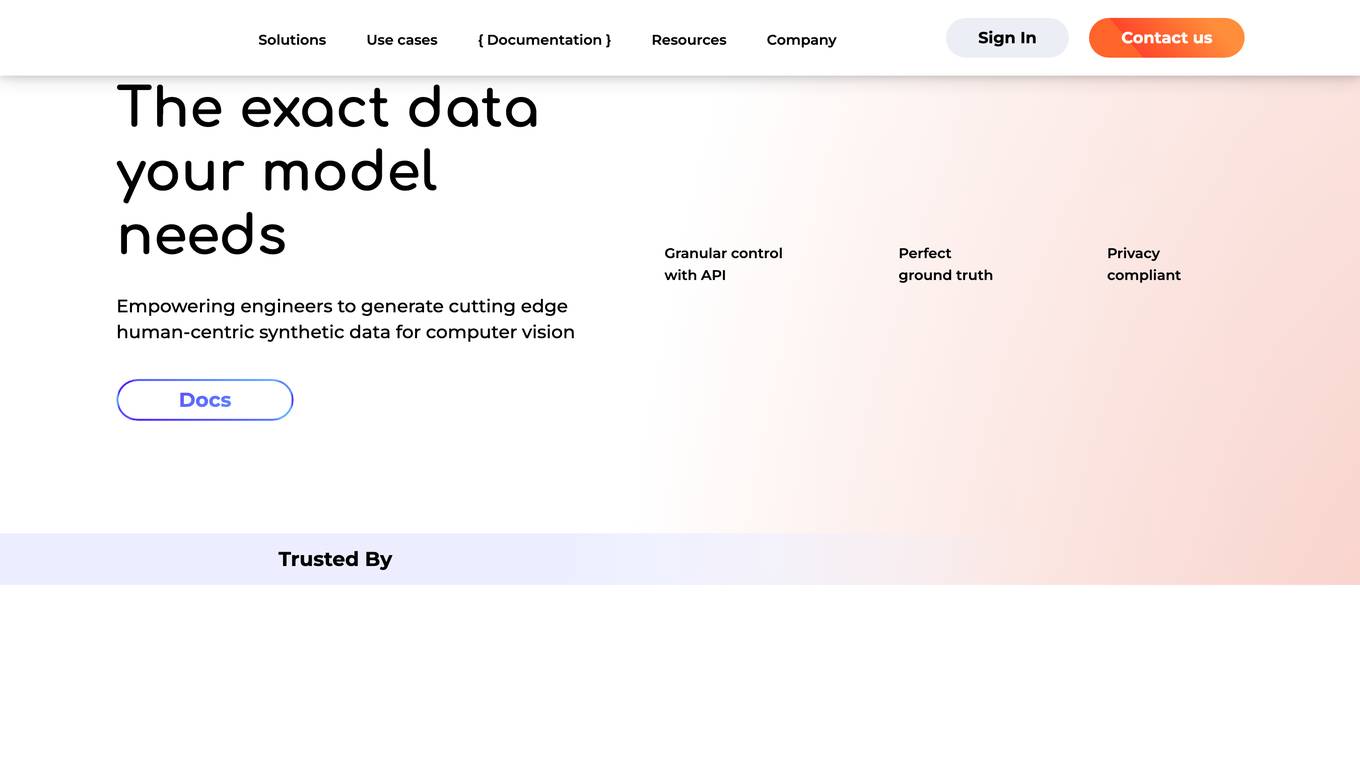
Datagen
Datagen is a platform that provides synthetic data for computer vision. Synthetic data is artificially generated data that can be used to train machine learning models. Datagen's data is generated using a variety of techniques, including 3D modeling, computer graphics, and machine learning. The company's data is used by a variety of industries, including automotive, security, smart office, fitness, cosmetics, and facial applications.
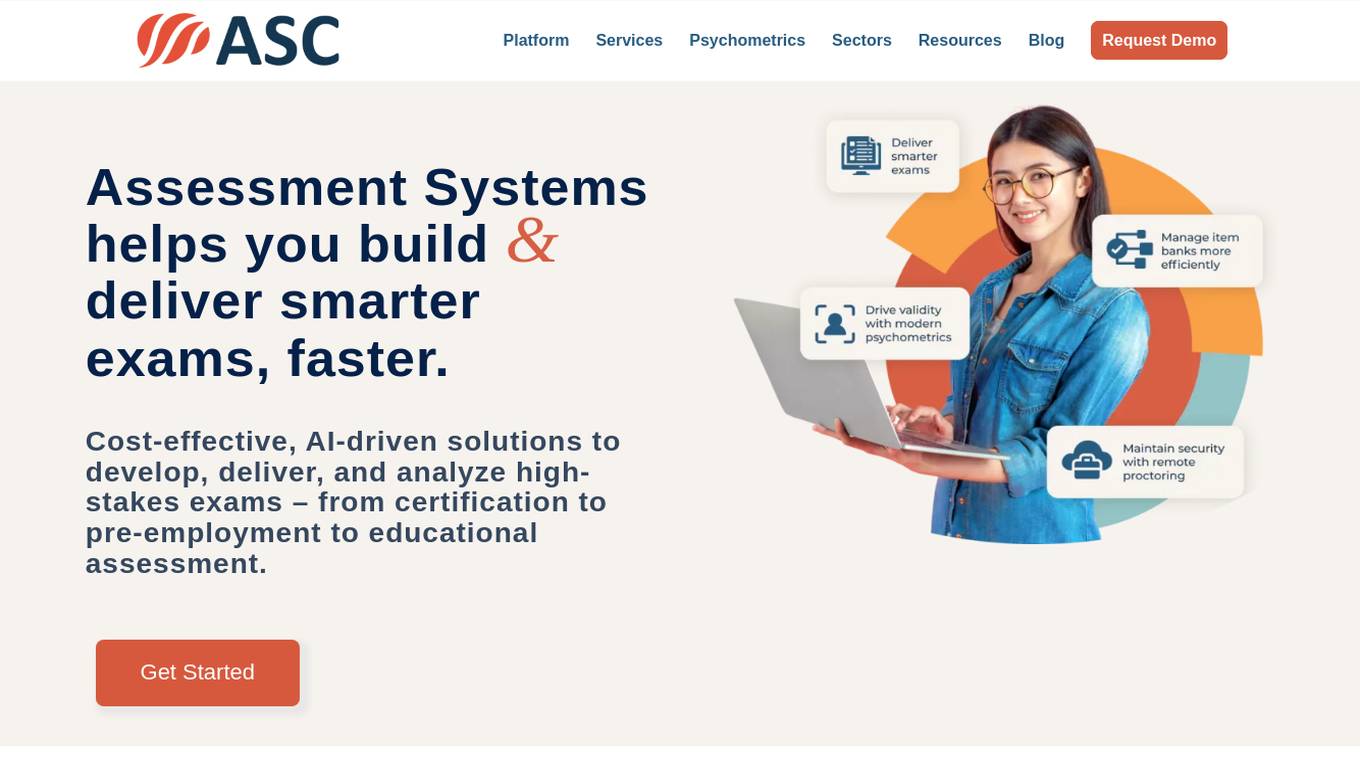
Assessment Systems
Assessment Systems is an online testing platform that provides cost-effective, AI-driven solutions to develop, deliver, and analyze high-stakes exams. With Assessment Systems, you can build and deliver smarter exams faster, thanks to modern psychometrics and AI like computerized adaptive testing, multistage testing, or automated item generation. You can also deliver exams flexibly: paper, online testing unproctored, online proctored, and test centers (yours or ours). Assessment Systems also offers item banking software to build better tests in less time, with collaborative item development brought to life with versioning, user roles, metadata, workflow management, multimedia, automated item generation, and much more.

Mobility Engineering
Mobility Engineering is a website that provides news, articles, and resources on the latest developments in mobility technology. The site covers a wide range of topics, including autonomous vehicles, connected cars, electric vehicles, and more. Mobility Engineering is a valuable resource for anyone interested in staying up-to-date on the latest trends in mobility technology.

BugFree.ai
BugFree.ai is an AI-powered platform designed to help users practice system design and behavior interviews, similar to Leetcode. The platform offers a range of features to assist users in preparing for technical interviews, including mock interviews, real-time feedback, and personalized study plans. With BugFree.ai, users can improve their problem-solving skills and gain confidence in tackling complex interview questions.
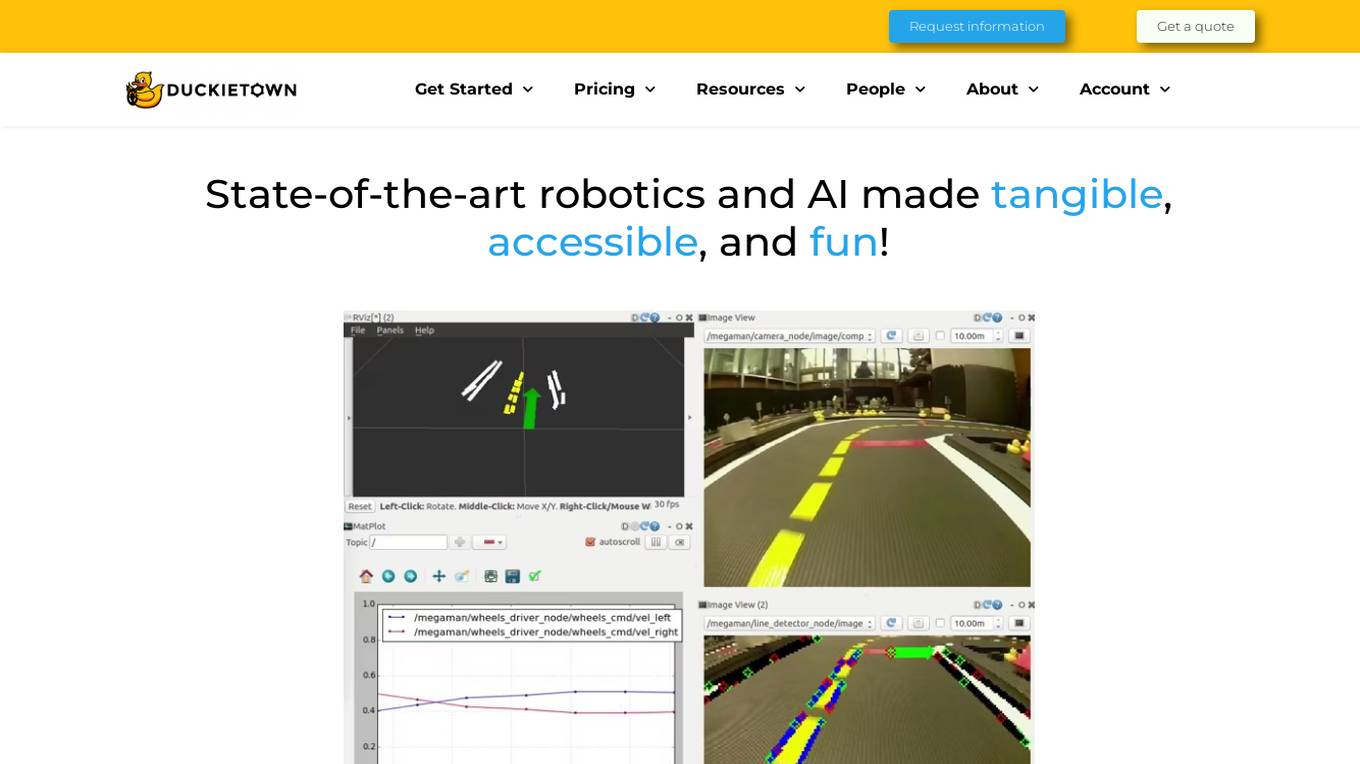
Duckietown
Duckietown is a platform for delivering cutting-edge robotics and AI learning experiences. It offers teaching resources to instructors, hands-on activities to learners, an accessible research platform to researchers, and a state-of-the-art ecosystem for professional training. Duckietown's mission is to make robotics and AI education state-of-the-art, hands-on, and accessible to all.
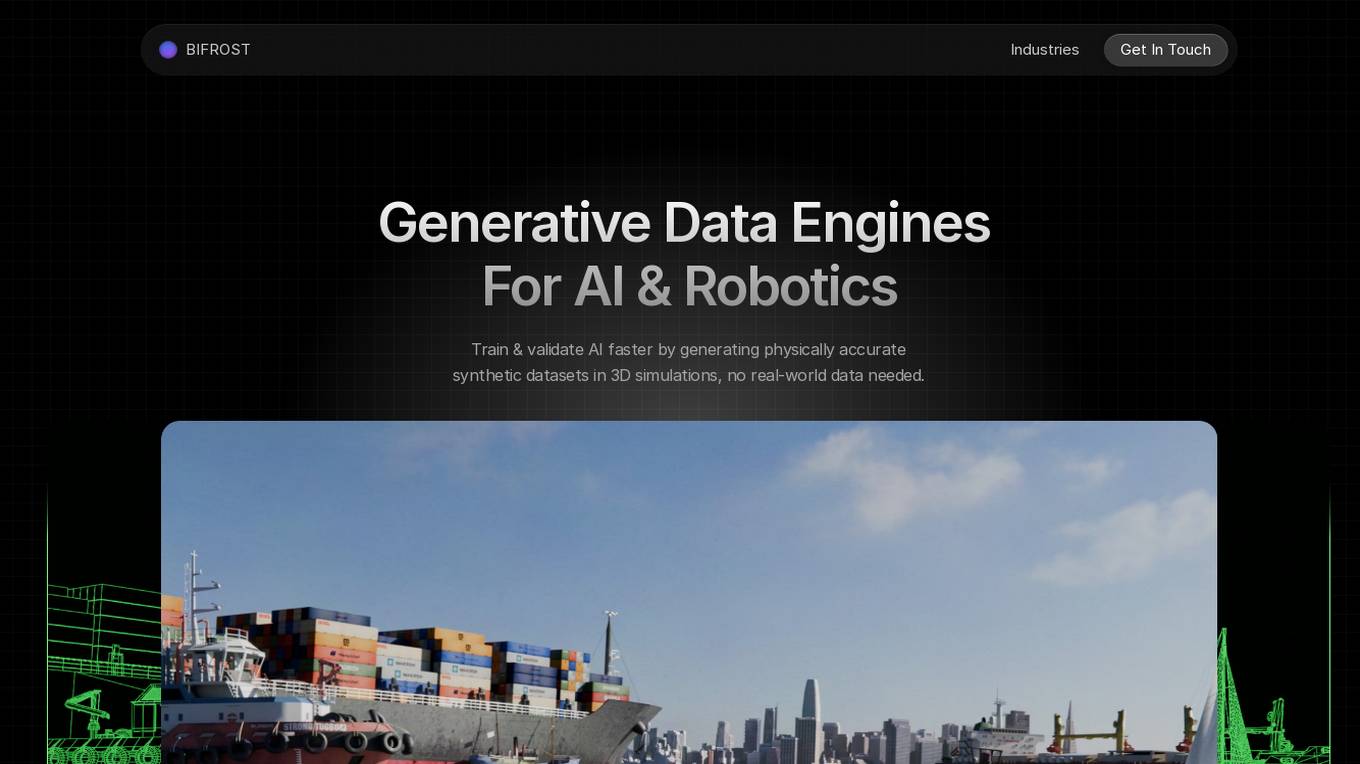
Bifrost AI
Bifrost AI is a data generation engine designed for AI and robotics applications. It enables users to train and validate AI models faster by generating physically accurate synthetic datasets in 3D simulations, eliminating the need for real-world data. The platform offers pixel-perfect labels, scenario metadata, and a simulated 3D world to enhance AI understanding. Bifrost AI empowers users to create new scenarios and datasets rapidly, stress test AI perception, and improve model performance. It is built for teams at every stage of AI development, offering features like automated labeling, class imbalance correction, and performance enhancement.
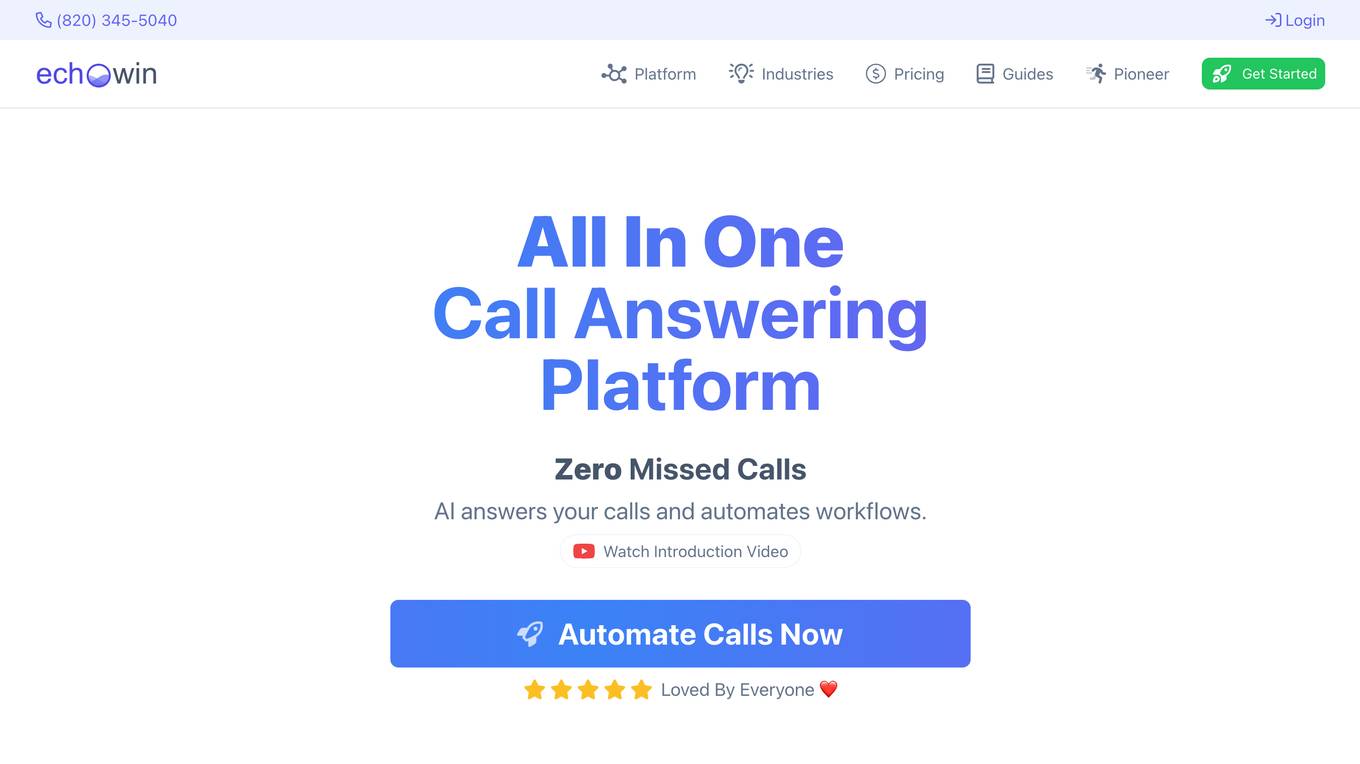
echowin
echowin is an AI Voice Agent Builder Platform that enables businesses to create AI agents for calls, chat, and Discord. It offers a comprehensive solution for automating customer support with features like Agentic AI logic and reasoning, support for over 30 languages, parallel call answering, and 24/7 availability. The platform allows users to build, train, test, and deploy AI agents quickly and efficiently, without compromising on capabilities or scalability. With a focus on simplicity and effectiveness, echowin empowers businesses to enhance customer interactions and streamline operations through cutting-edge AI technology.
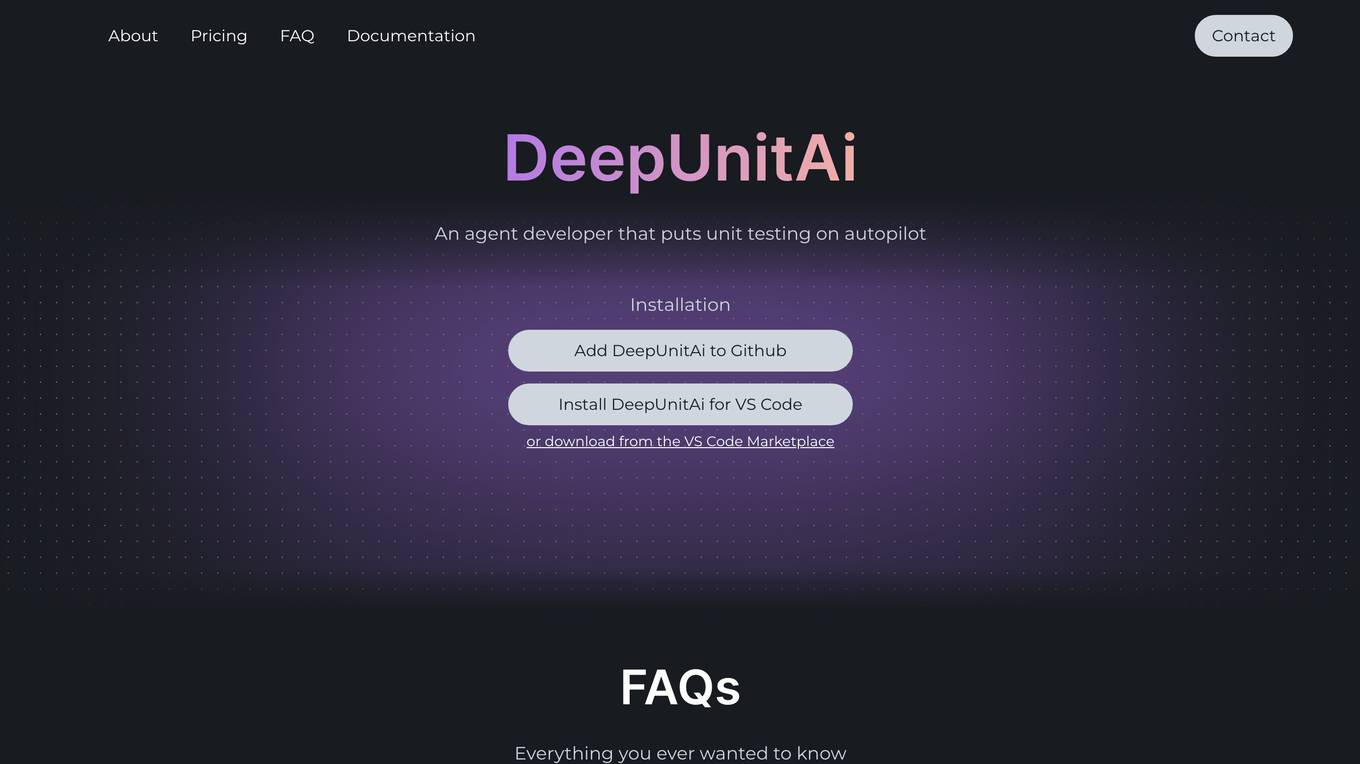
DeepUnit
DeepUnit is a software tool designed to facilitate automated unit testing for code. By using DeepUnit, developers can ensure the quality and reliability of their code by automatically running tests to identify bugs and errors. The tool is user-friendly and integrates seamlessly with popular development environments like NPM and VS Code.
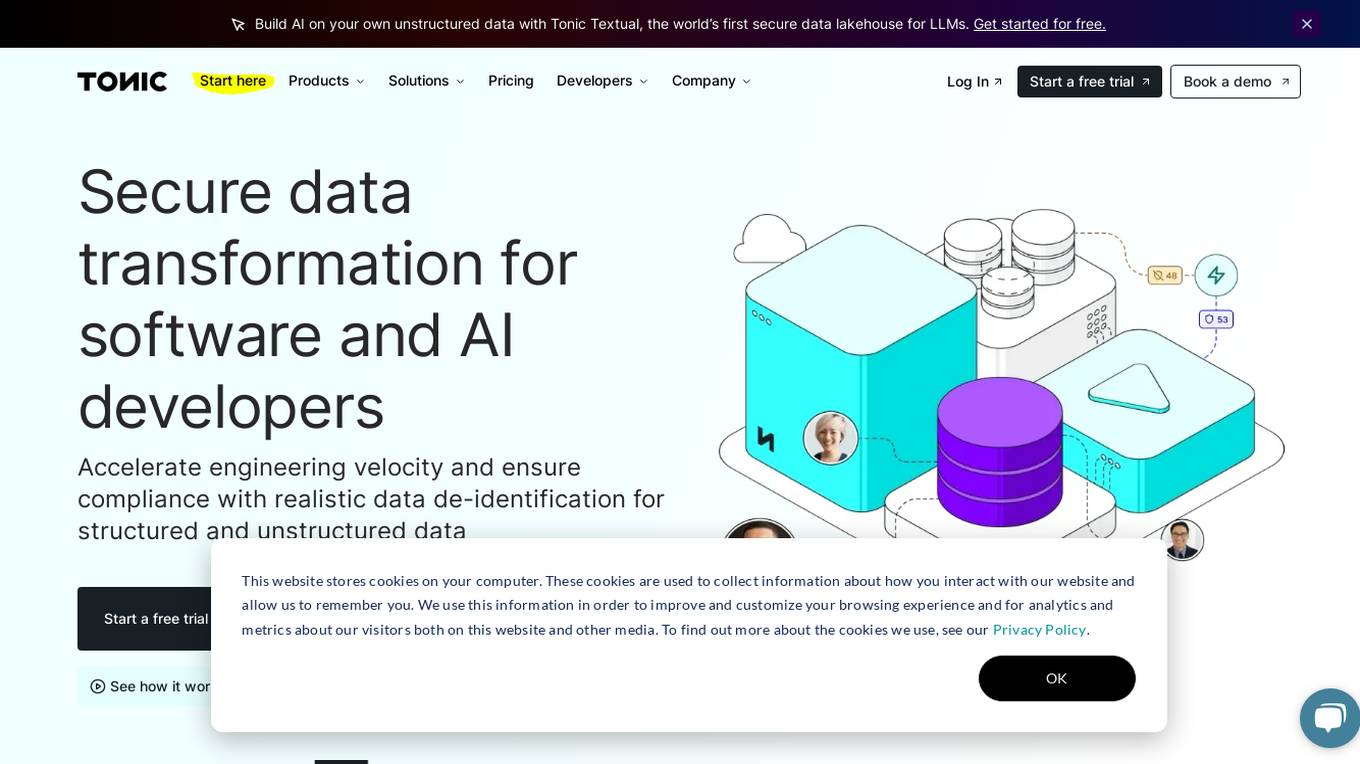
Tonic.ai
Tonic.ai is a platform that allows users to build AI models on their unstructured data. It offers various products for software development and LLM development, including tools for de-identifying and subsetting structured data, scaling down data, handling semi-structured data, and managing ephemeral data environments. Tonic.ai focuses on standardizing, enriching, and protecting unstructured data, as well as validating RAG systems. The platform also provides integrations with relational databases, data lakes, NoSQL databases, flat files, and SaaS applications, ensuring secure data transformation for software and AI developers.
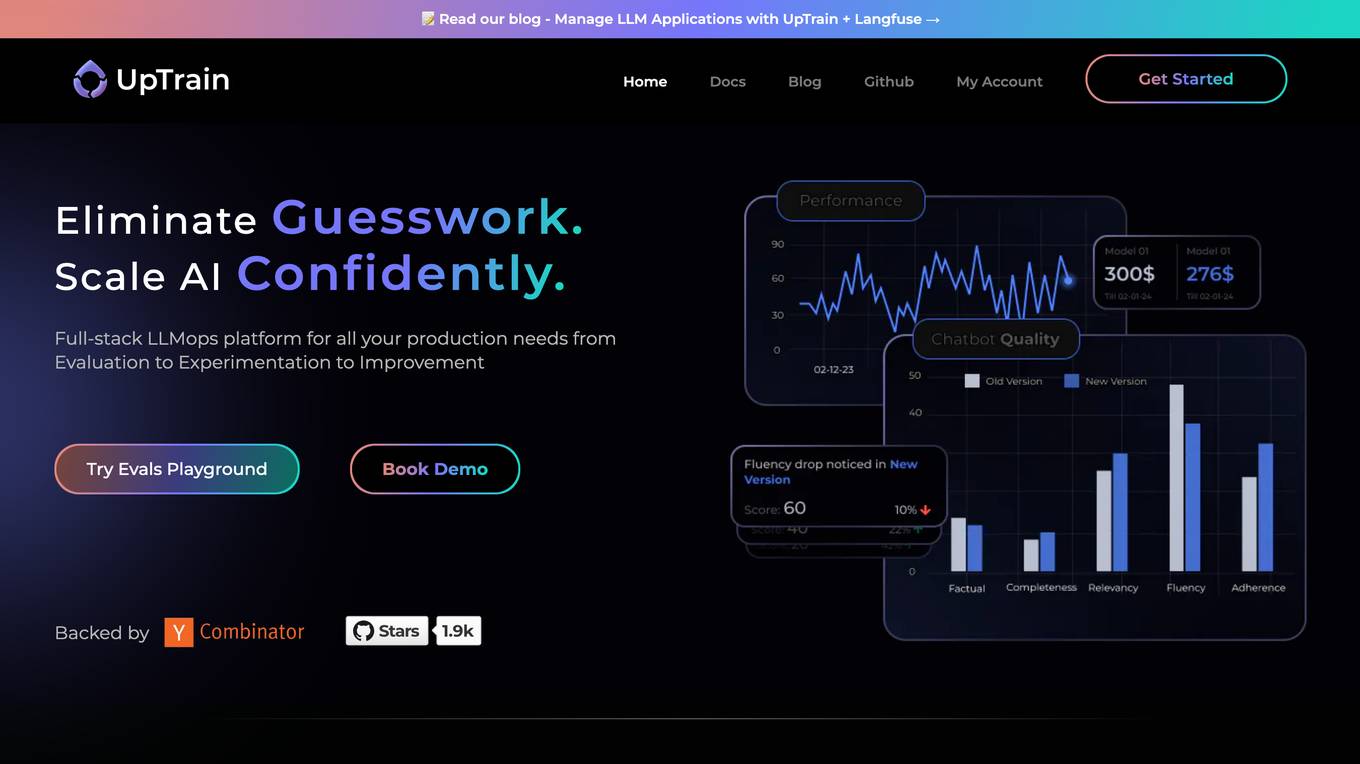
UpTrain
UpTrain is a full-stack LLMOps platform designed to help users confidently scale AI by providing a comprehensive solution for all production needs, from evaluation to experimentation to improvement. It offers diverse evaluations, automated regression testing, enriched datasets, and innovative techniques to generate high-quality scores. UpTrain is built for developers, compliant to data governance needs, cost-efficient, remarkably reliable, and open-source. It provides precision metrics, task understanding, safeguard systems, and covers a wide range of language features and quality aspects. The platform is suitable for developers, product managers, and business leaders looking to enhance their LLM applications.
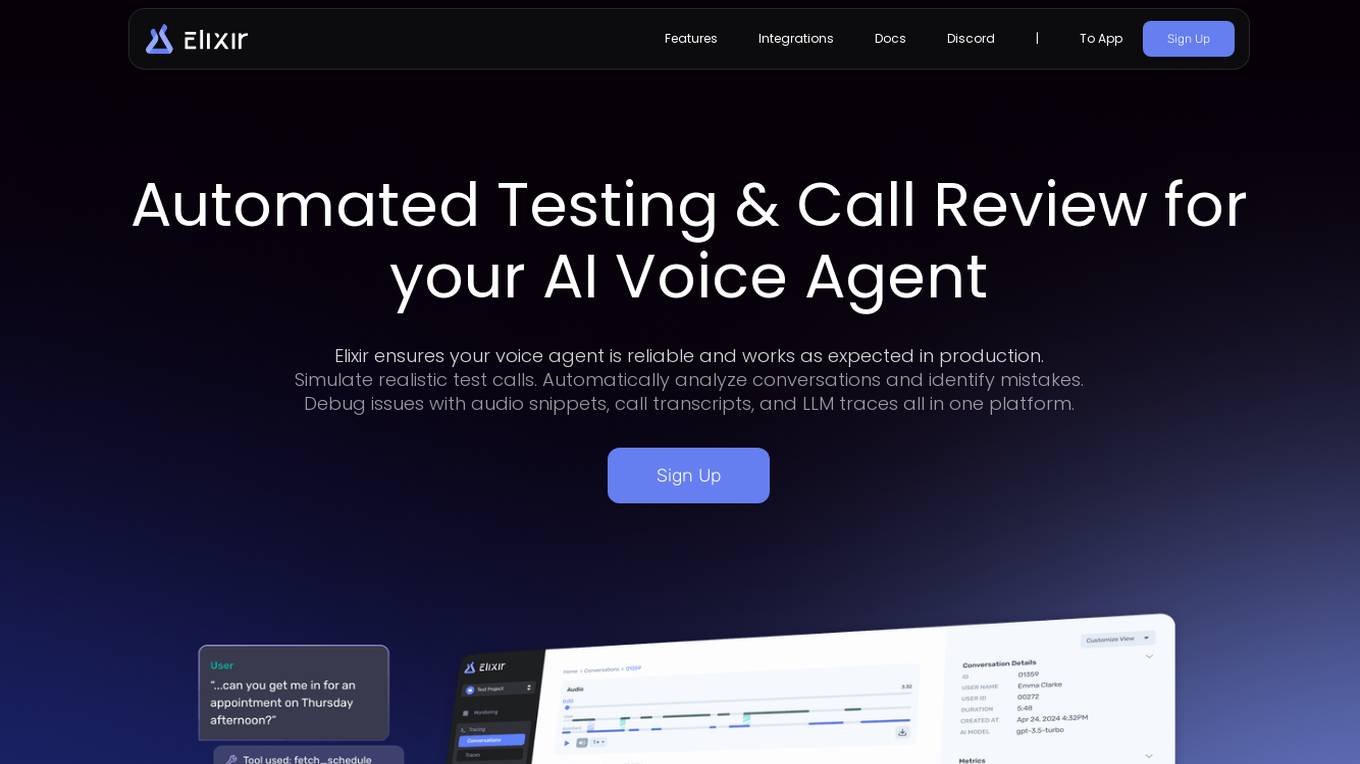
Elixir
Elixir is an AI tool designed for observability and testing of AI voice agents. It offers features such as automated testing, call review, monitoring, analytics, tracing, scoring, and reviewing. Elixir helps in simulating realistic test calls, analyzing conversations, identifying mistakes, and debugging issues with audio snippets and call transcripts. It provides detailed traces for complex abstractions, streamlines manual review processes, and allows for simulating thousands of calls for full test coverage. The tool is suitable for monitoring agent performance, detecting anomalies in real-time, and improving conversational systems through human-in-the-loop feedback.
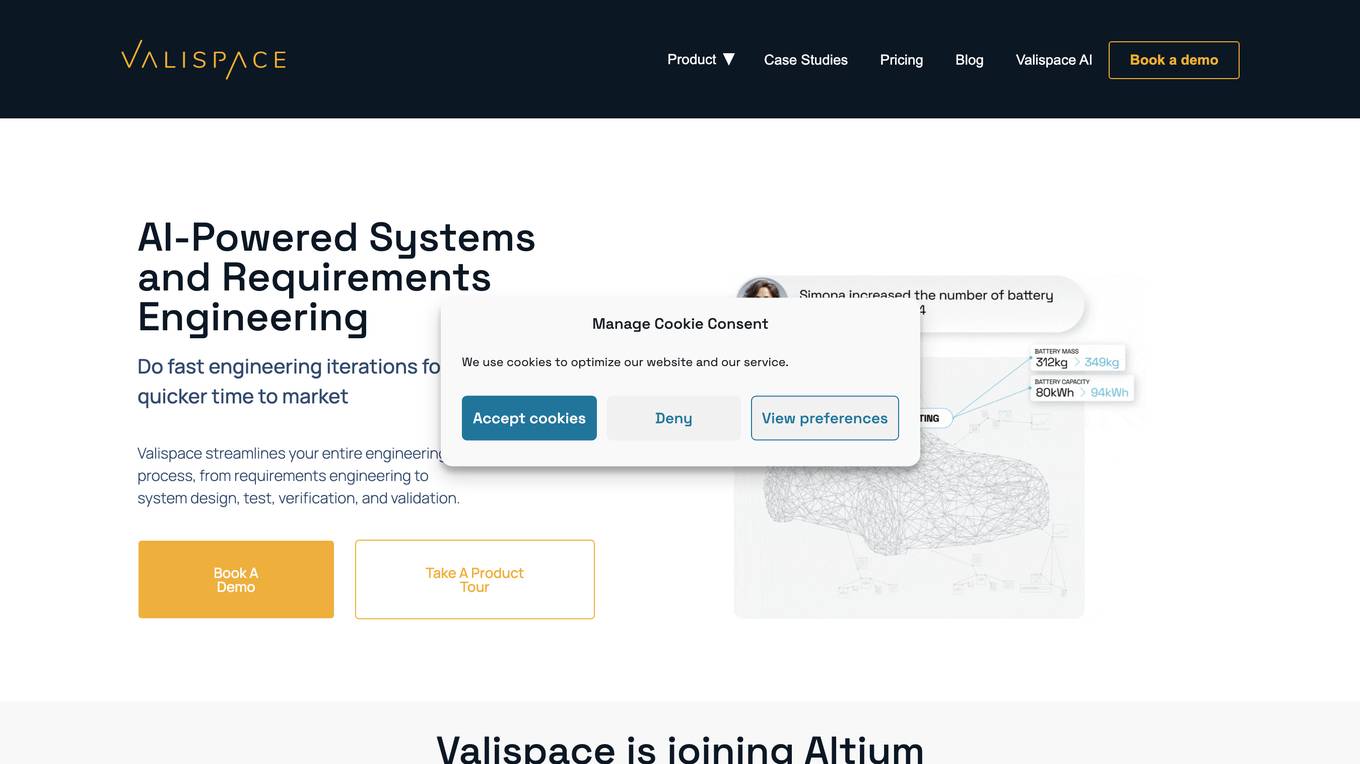
Valispace
Valispace is an AI-powered platform that streamlines the entire engineering process, from requirements engineering to system design, test, verification, and validation. It modernizes classic engineering practices, enabling fast design iterations and automatic verifications. The platform assists in removing mundane and manual engineering tasks, saving engineering hours and enhancing collaboration among engineers and stakeholders.
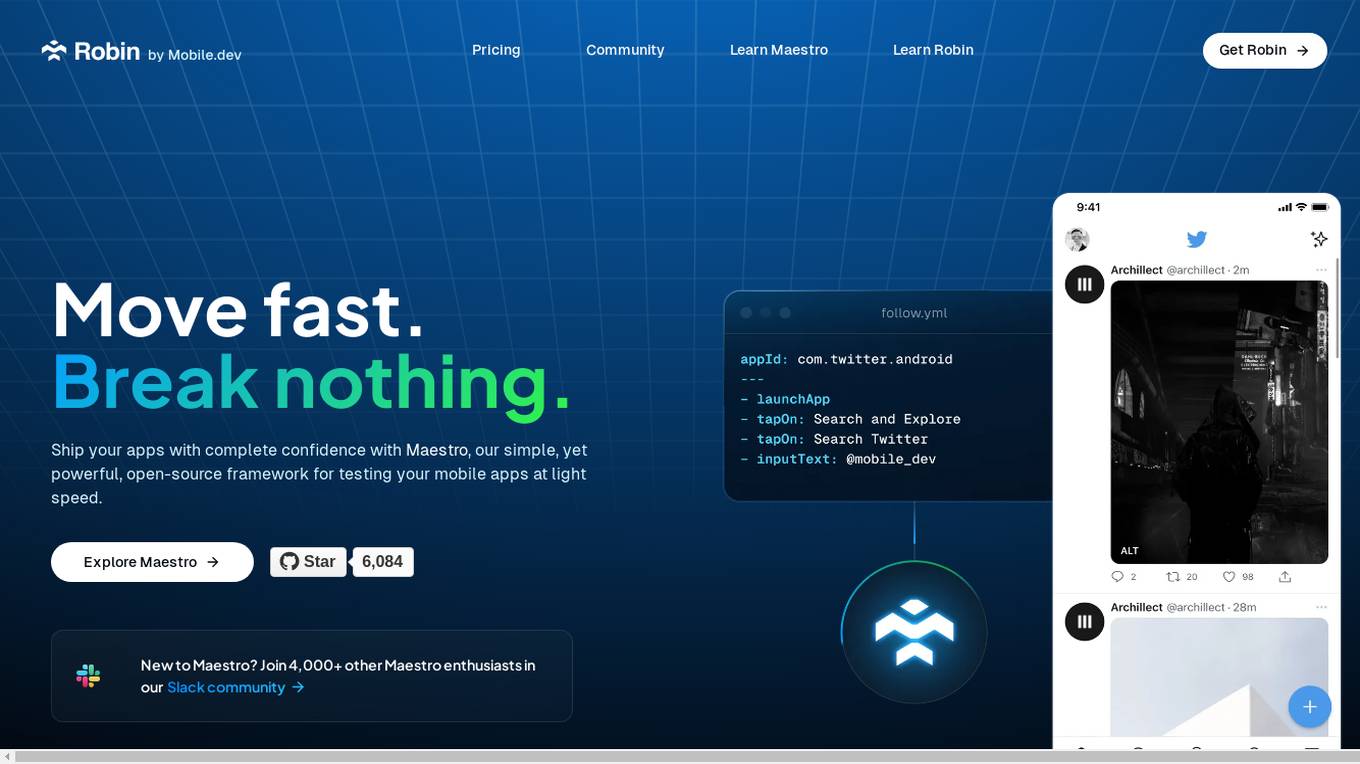
Robin
Robin by Mobile.dev is an AI-powered mobile app testing tool that allows users to test their mobile apps with confidence. It offers a simple yet powerful open-source framework called Maestro for testing mobile apps at high speed. With intuitive and reliable testing powered by AI, users can write rock-solid tests without extensive coding knowledge. Robin provides an end-to-end testing strategy, rapid testing across various devices and operating systems, and auto-healing of test flows using state-of-the-art AI models.
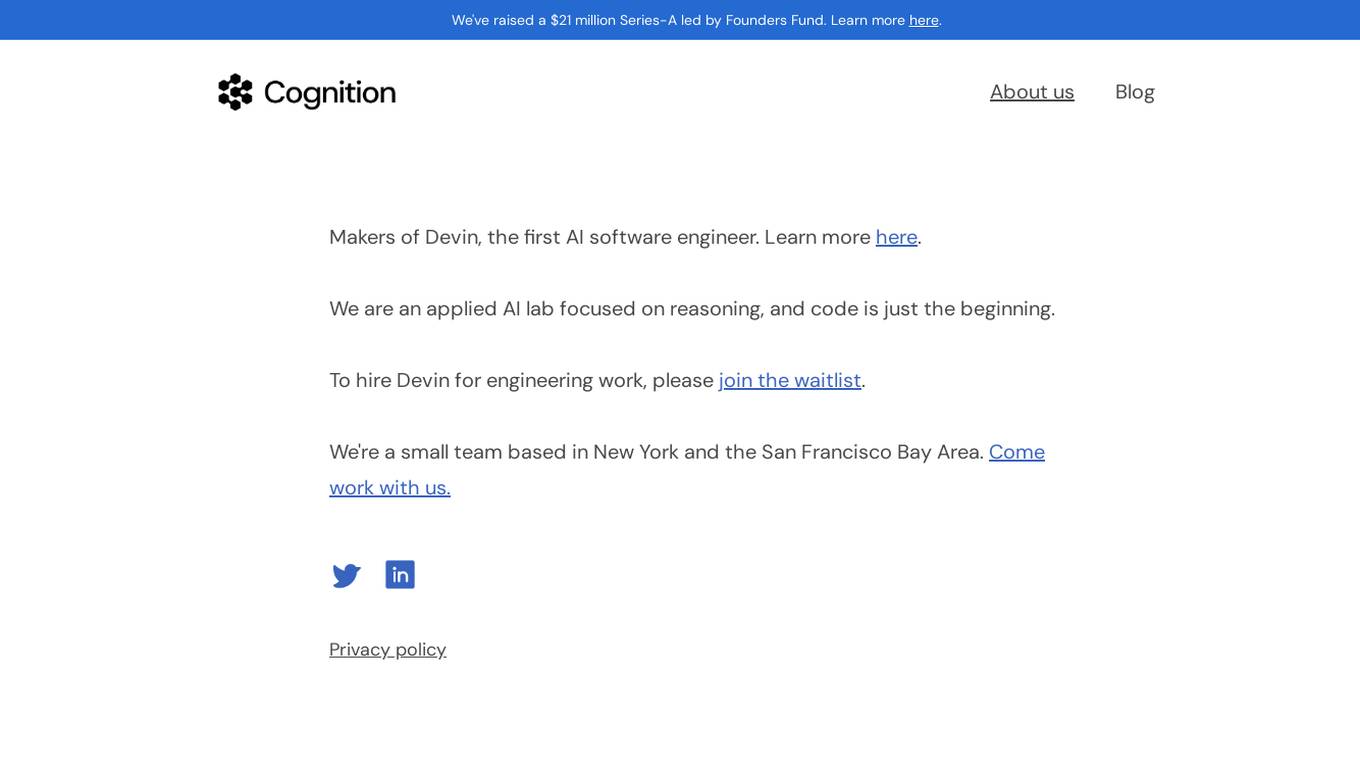
Cognition
Cognition is an applied AI lab focused on reasoning. Their first product, Devin, is the first AI software engineer. Cognition is a small team based in New York and the San Francisco Bay Area.
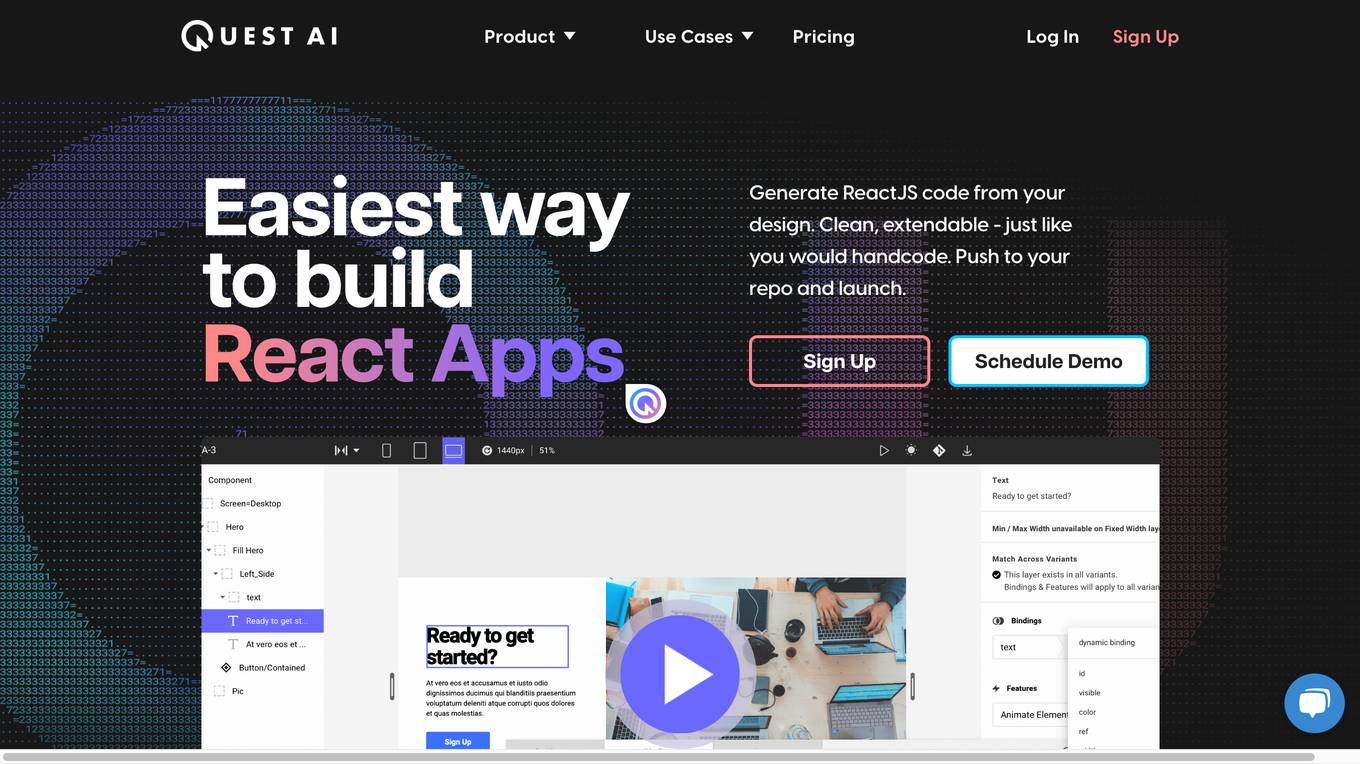
Quest
Quest is a web-based application that allows users to generate React code from their designs. It incorporates AI models to generate real, useful code that incorporates all the things professional developers care about. Users can use Quest to build new applications, add to existing applications, and create design systems and libraries. Quest is made for development teams and integrates with the design and dev tools that users love. It is also built for the most demanding product teams and can be used to build new applications, build web pages, and create component templates.
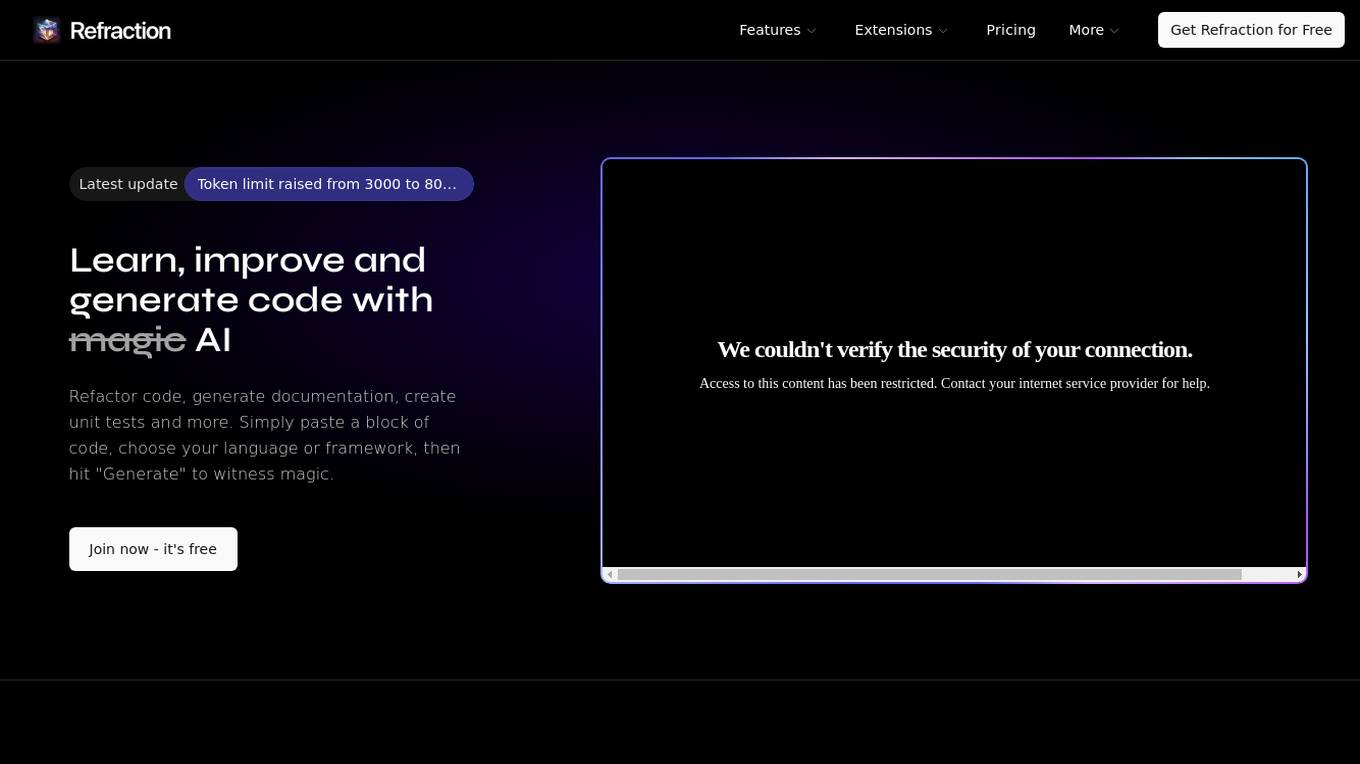
Refraction
Refraction is an AI-powered code generation tool designed to help developers learn, improve, and generate code effortlessly. It offers a wide range of features such as bug detection, code conversion, function creation, CSP generation, CSS style conversion, debug statement addition, diagram generation, documentation creation, code explanation, code improvement, concept learning, CI/CD pipeline creation, SQL query generation, code refactoring, regex generation, style checking, type addition, and unit test generation. With support for 56 programming languages, Refraction is a versatile tool trusted by innovative companies worldwide to streamline software development processes using the magic of AI.
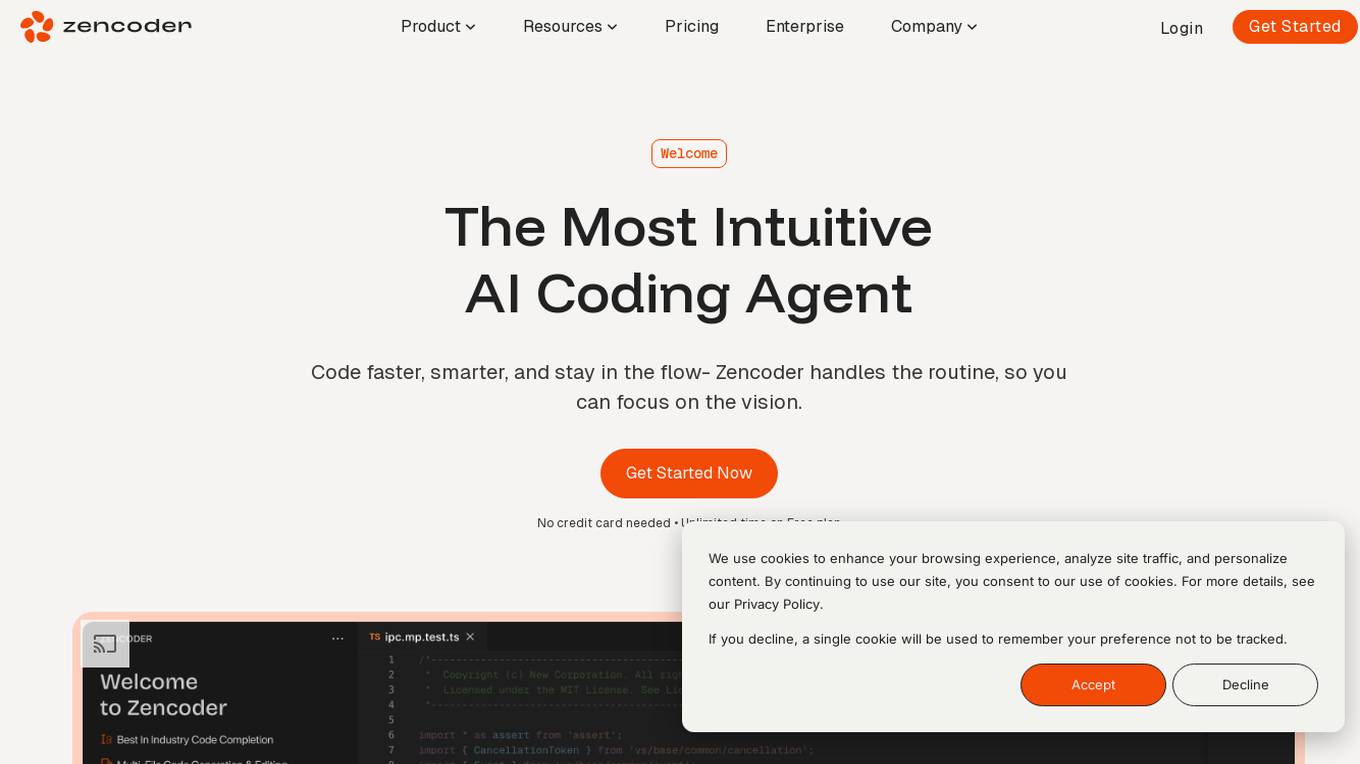
Zencoder
Zencoder is an intuitive AI coding agent designed to assist developers in coding tasks by leveraging advanced AI workflows and intelligent systems. It offers features like Repo Grokking for deep code insights, AI Agents for streamlining development processes, and capabilities such as code generation, chat assistance, code completion, and more. Zencoder aims to enhance software development efficiency, code quality, and project alignment by integrating seamlessly into developers' workflows.
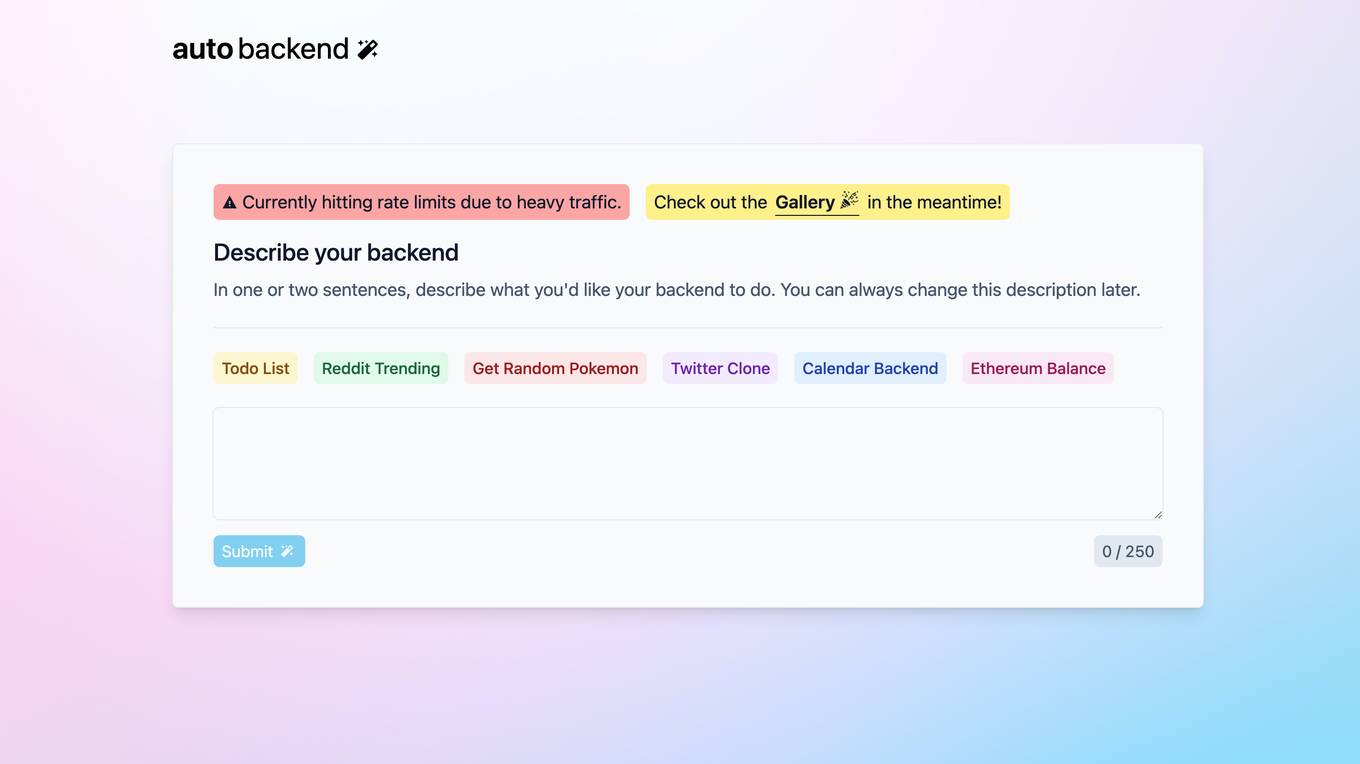
Autobackend.dev
Autobackend.dev is a web development platform that provides tools and resources for building and managing backend systems. It offers a range of features such as database management, API integration, and server configuration. With Autobackend.dev, users can streamline the process of backend development and focus on creating innovative web applications.
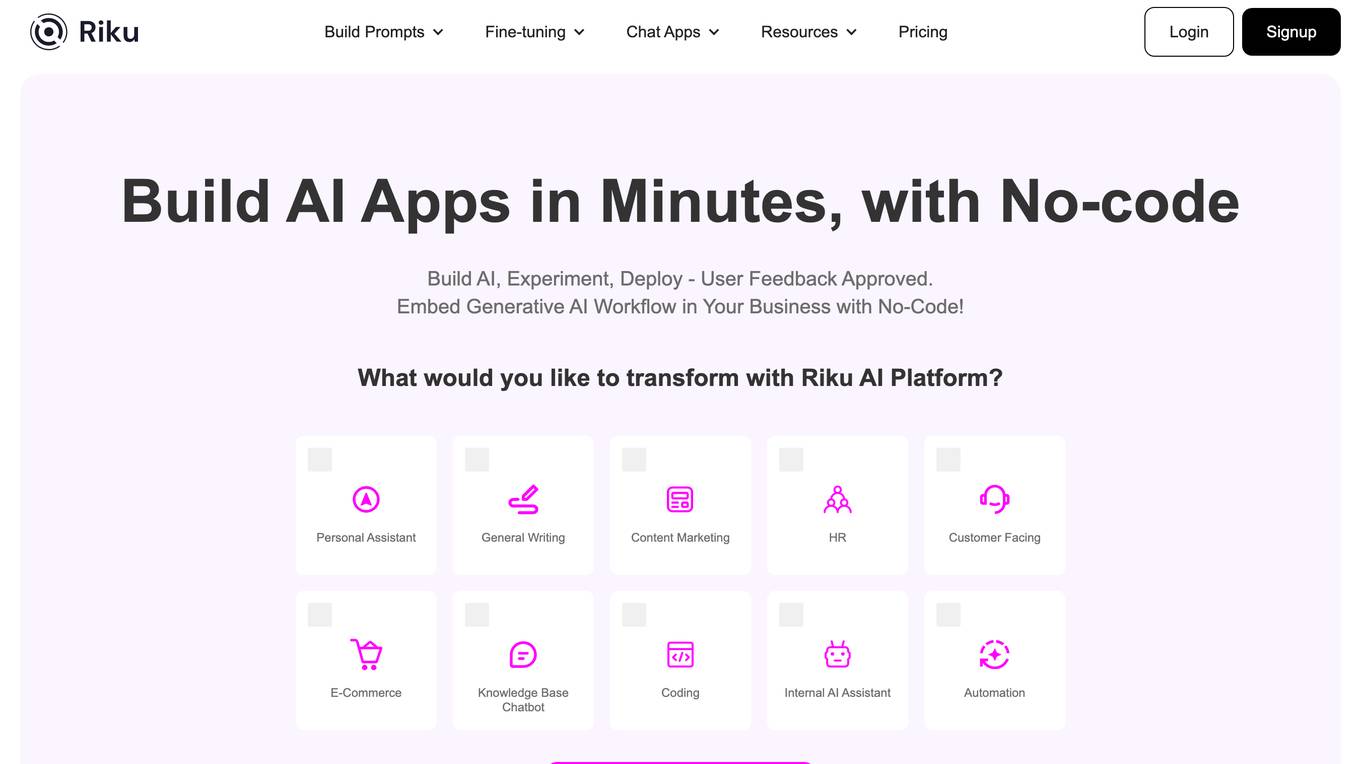
Riku
Riku is a no-code platform that allows users to build and deploy powerful generative AI for their business. With access to over 40 industry-leading LLMs, users can easily test different prompts to find just the right one for their needs. Riku's platform also allows users to connect siloed data sources and systems together to feed into powerful AI applications. This makes it easy for businesses to automate repetitive tasks, test ideas rapidly, and get answers in real-time.
0 - Open Source AI Tools
20 - OpenAI Gpts
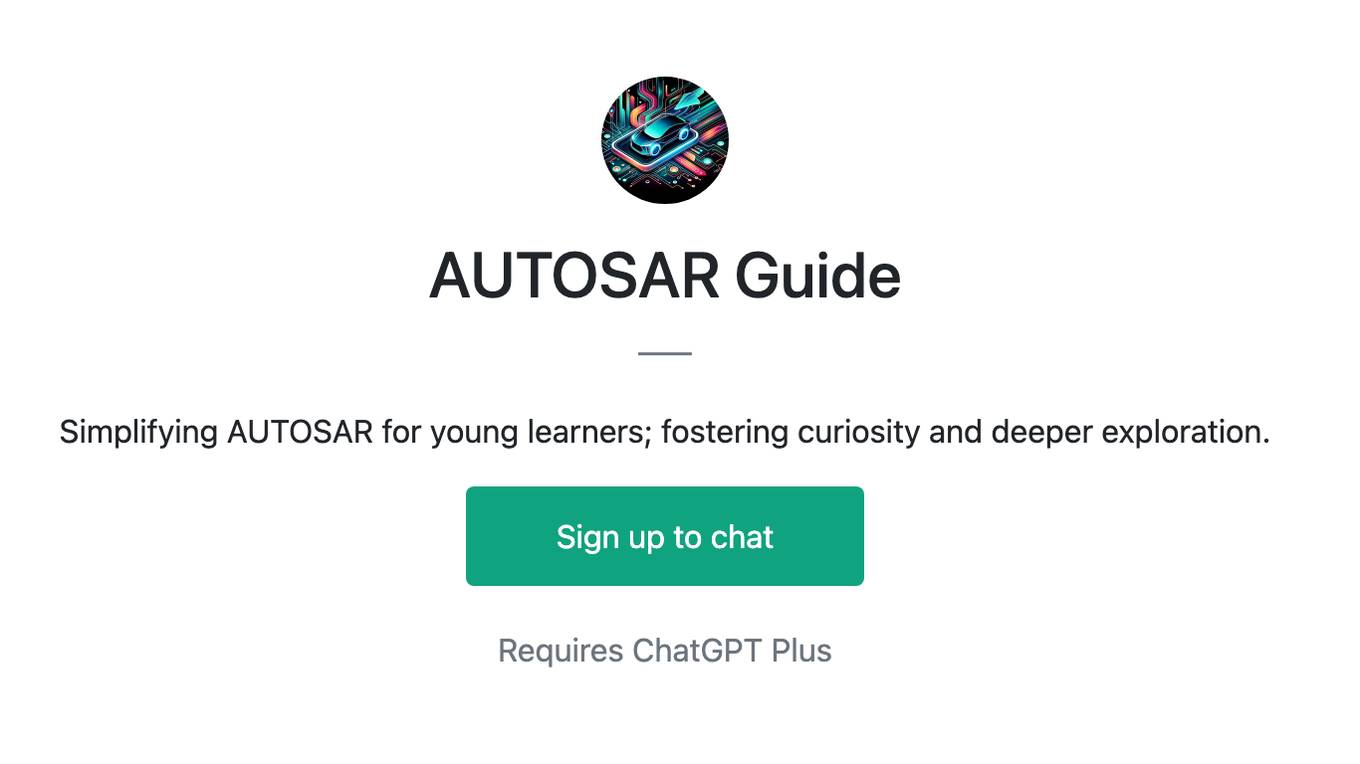
AUTOSAR Guide
Simplifying AUTOSAR for young learners; fostering curiosity and deeper exploration.
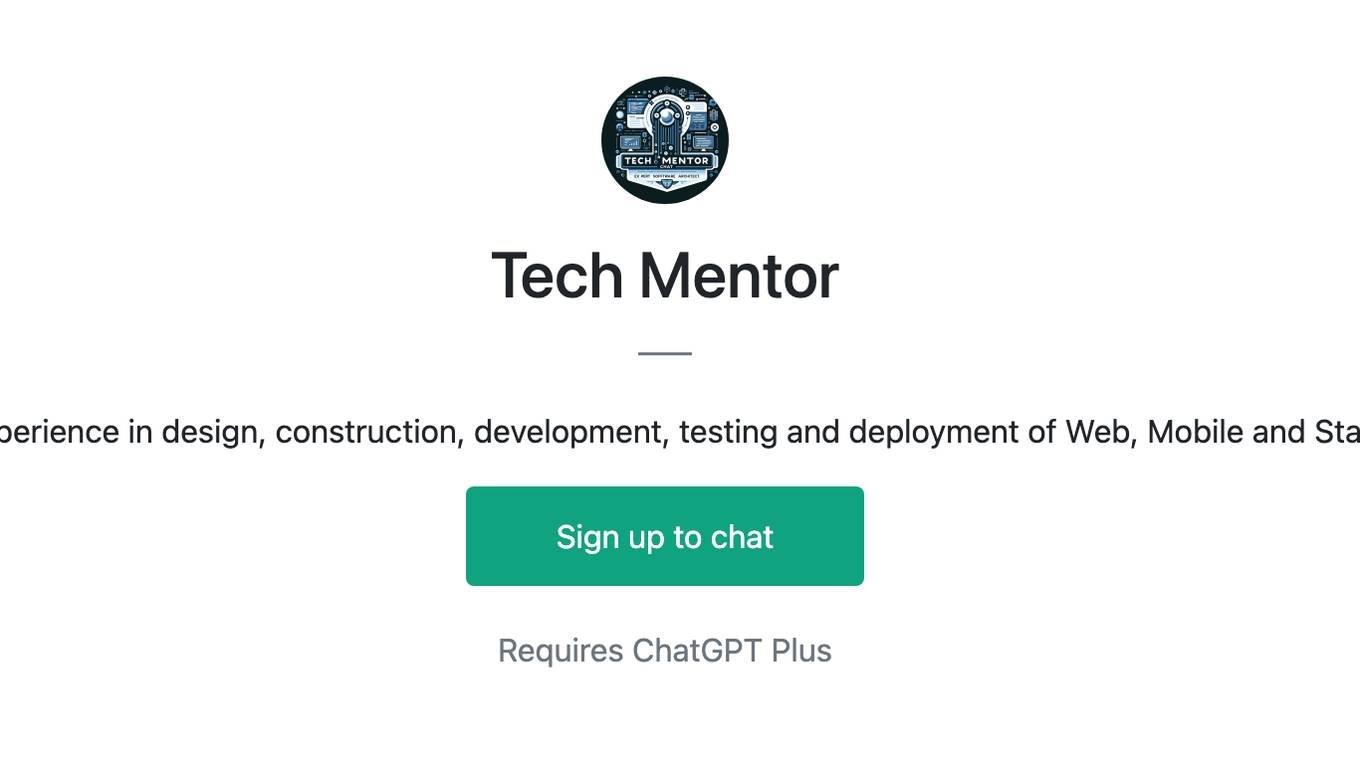
Tech Mentor
Expert software architect with experience in design, construction, development, testing and deployment of Web, Mobile and Standalone software architectures
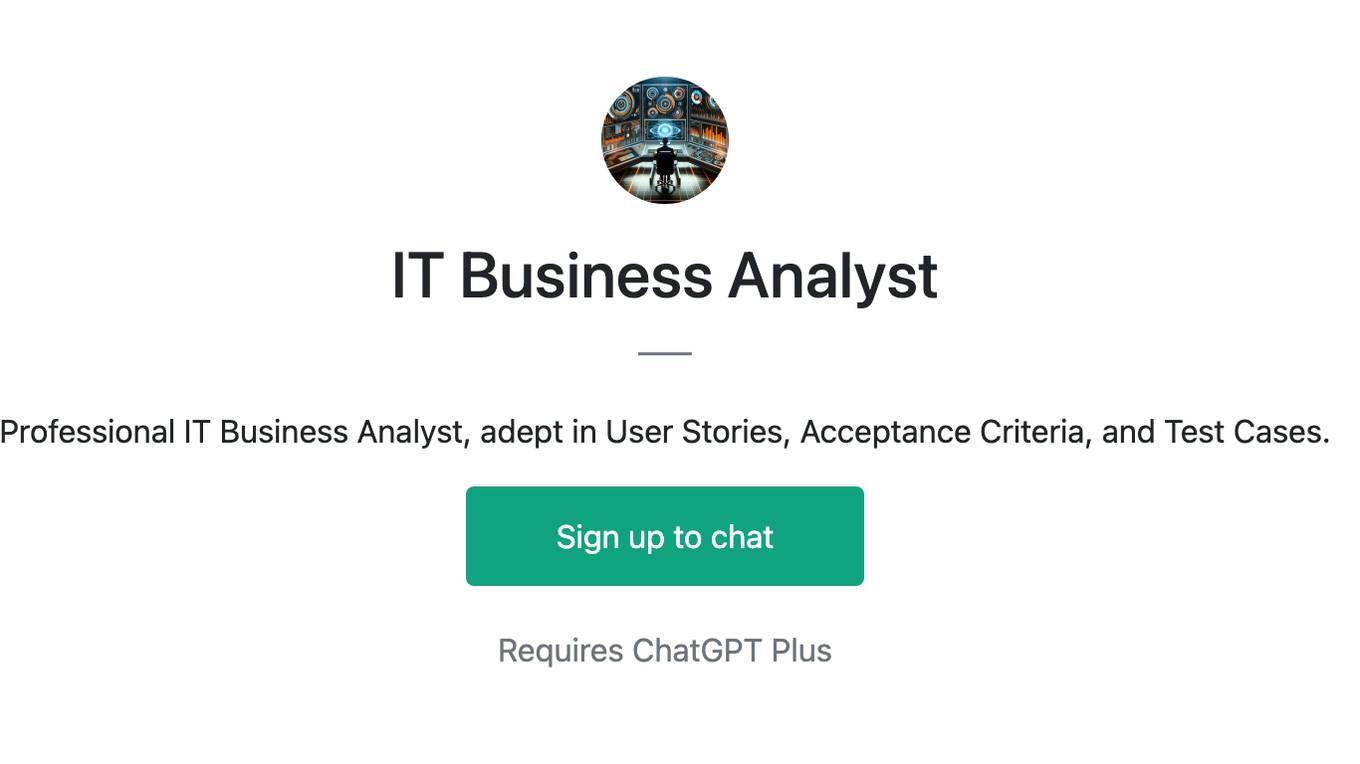
IT Business Analyst
Professional IT Business Analyst, adept in User Stories, Acceptance Criteria, and Test Cases.
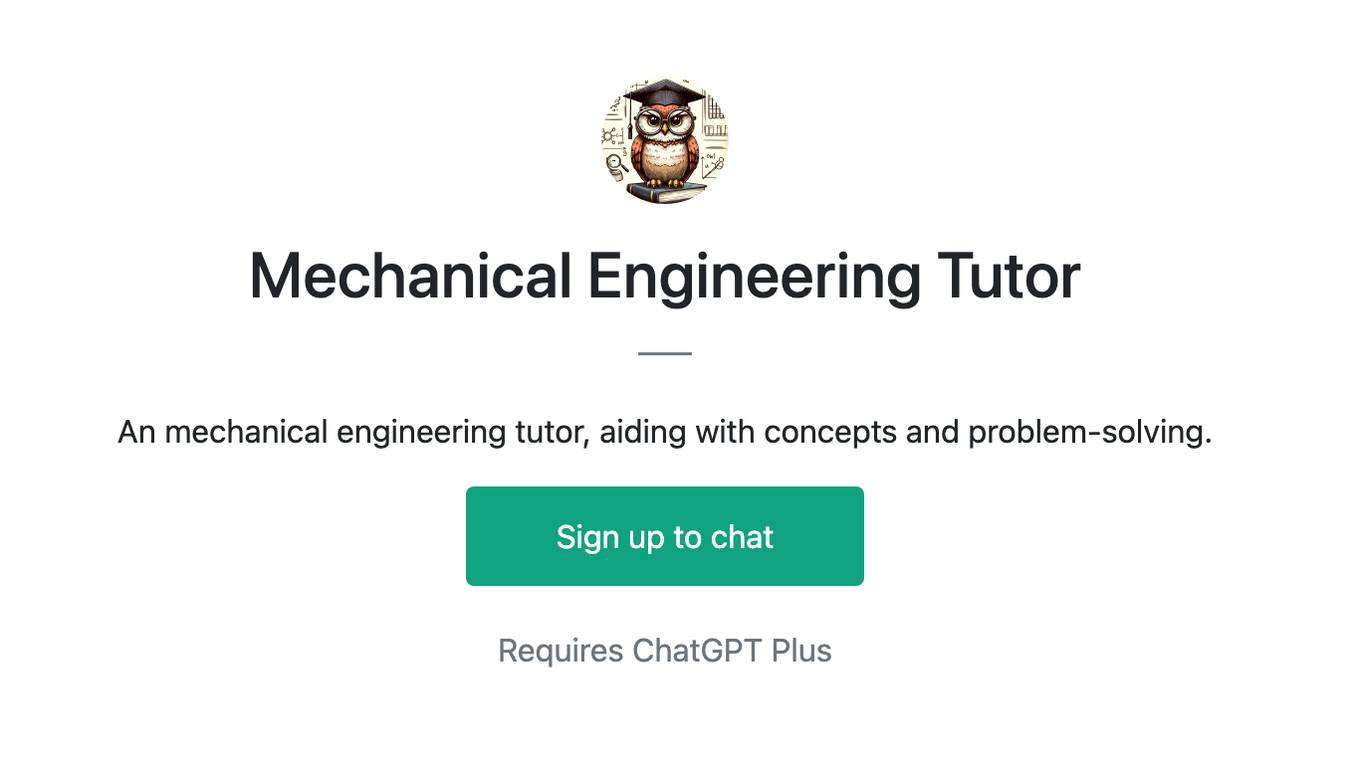
Mechanical Engineering Tutor
An mechanical engineering tutor, aiding with concepts and problem-solving.
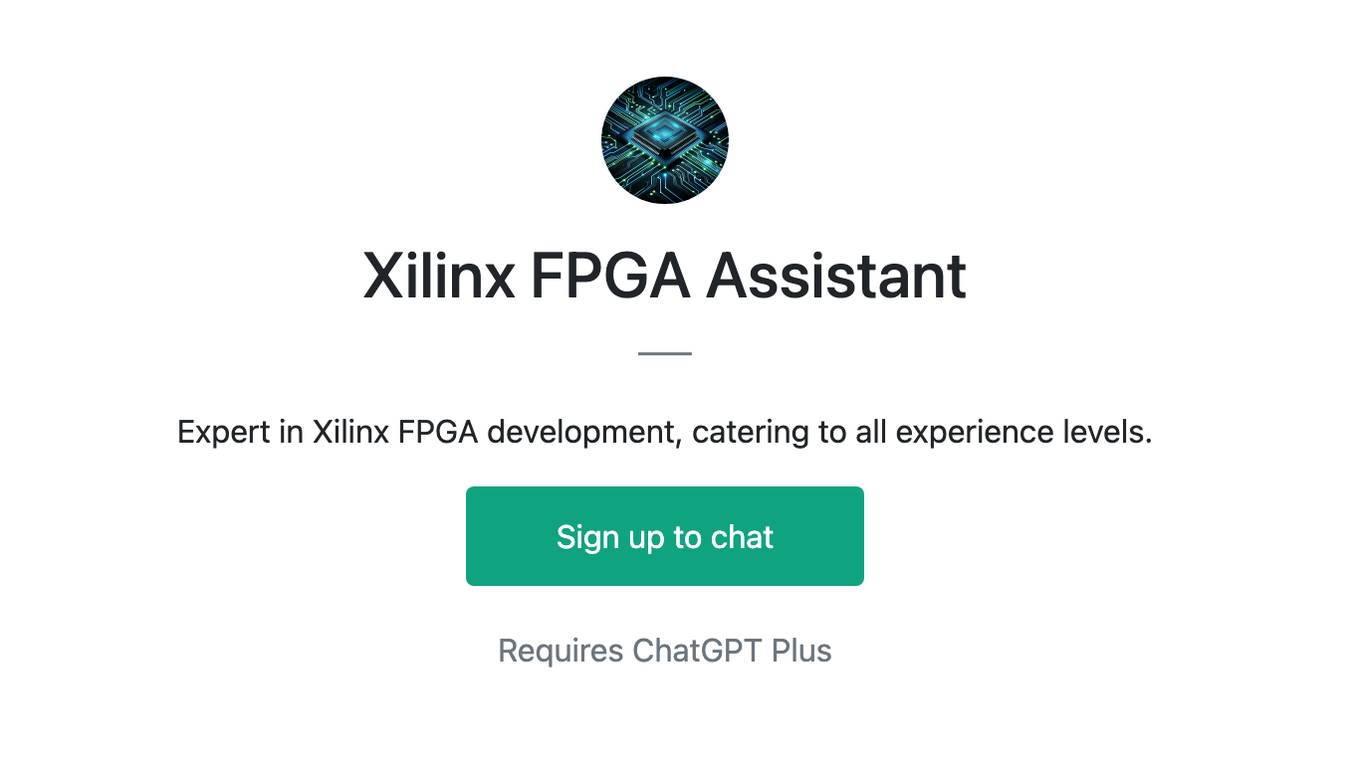
Xilinx FPGA Assistant
Expert in Xilinx FPGA development, catering to all experience levels.
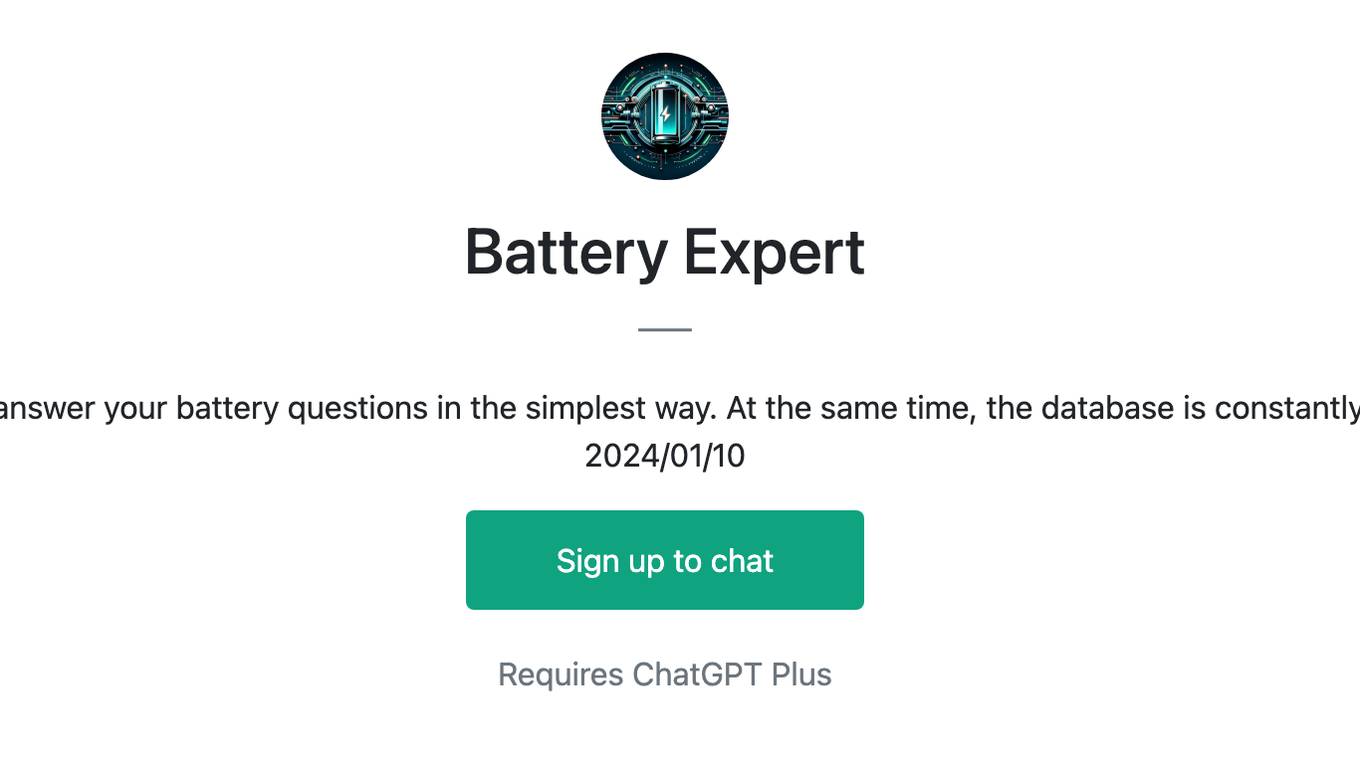
Battery Expert
Professional experts in the battery field will answer your battery questions in the simplest way. At the same time, the database is constantly updated, and it has now been updated to 2024/01/10
